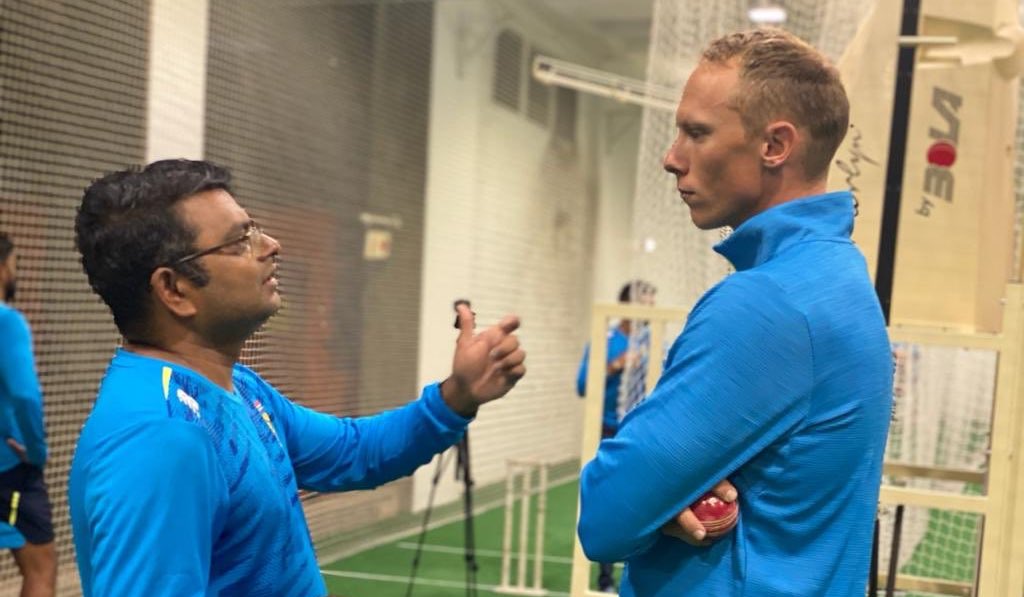
Table of Contents
EDITOR'S NOTE
Learning From 2021 T20 World Cup
Khalid Mohidin
Founder and Editor - Cricket Fanatics Magazine
It's official. Australia are T20 World Cup champions, for the first time in their illustrious history.
The team from Down Under were the only outfit to beat South Africa in this World Cup and it took place in the opening match of the tournament.
The current group of Proteas showed excellent fight and determination throughout their journey and proved that they deserve praise for their efforts, missing out on a semi-final spot by Net Run Rate.
The highlight of their tournament came in their final match against England which saw them clinch an excellent consolation victory.
Rassie van der Dussen and Aiden Markram's batting efforts reflect the progress that the team has made in the T20 format. The bowling proved that they are a World Class unit, consistently relieving pressure and reversing pressure onto the opposition.
But there were not only lessons to learn from the Proteas' run, there were also key aspects to analyse from other teams in the competition too. Especially the World Champions.
In this issue, we will be discussing what we learned from South Africa's 2021 T20 World Cup campaign and other teams in the tournament.
So sit back, grab a beverage and a snack, and enjoy issue 17 of Cricket Fanatics Magazine.

BECOME A PATRON
By Khalid Mohidin
Hey, guys! Welcome to Cricket Fanatics Magazine. I would like to welcome you to the first and only fan-driven Cricket publication in South Africa.
I started this venture on 1 July 2019 with a vision to get fans from all walks of life engaged with the game and the personalities in cricket.
We want to tell the untold stories of South African cricket and we want fans to be heard.
Since we started, we covered the Mzansi Super League, Women’s Super League, Proteas Men and Women International Test, ODI and T20I series, as well as school and club cricket, with the aim of providing entertaining, engaging and educational content.
But hasn’t stopped there.
We started a Monthly Magazine where we provide multi-media content, including exclusive features, opinion pieces and analysis.
This works hand-in-hand with our YouTube channel where we produce unique cricket shows that allow fans to call in and have their say.
We have the Daily Show, which reveals all the major talking points in South African cricket.The Sunday Podcast Show where we sit back, relax and engage with the live chat, answering all the questions fans have about us and the game.
We have Off-Side Maidens, the first ever All-Women’s Cricket Show on YouTube, which helps empower women in cricket and gives them a place to share their own views on not only women’s cricket but all cricket.
We have a Legends show, where we interview all legends in cricket.
To produce all of this, we’ve invested a lot of money, time and effort to bring this to you for free.
But to keep this going we need your help. So we have opened a Patreon account.
Today, we are fortunate that technology has enabled anyone to become a patron of creative work, even if they are not a billionaire.
We have therefore launched a campaign for you as a Cricket Fan to become a patron and support us as an independent, bootstrapped publisher.
As a Patron, you also get your voice heard as a Fan.
Plus: You have the opportunity to become more engaged with the content we produce.
Every month we produce at least:
- 60 Website Articles
- 20 Daily Video Shows
- 4 Weekly Podcasts
- Match Previews
- Match Reviews
- Video Interviews
- And more…
So please join our Patreon campaign today.

Taking noticeable strides
By Aditya Mehta
Aiden Markram, the white-ball batter, has made significant strides.
At the beginning of 2021, there were questions about his place in the limited-overs setup. Towards the end of 2021, Markram was ranked third on the ICC T20 batting charts.
Within the space of 11 months, Markram made a significant leap. While one would argue he has always possessed the talent to be among the best batters in the world, it is his commitment to growing as a cricketer that has catapulted him to number three in the ICC rankings during the T20 World Cup campaign.
A large part of Markram’s growth in T20 cricket can be attributed to an intrinsic desire to elevate his skill set.
“The upskilling side of things has been a big thing for me. It's maybe normal when you are young growing up and you think you can play in other conditions the same way that you do in South Africa. And you almost just hope that it will be okay. And you can get some runs together.
"But you have to go through the tough times to realize that you actually have to have different sort of game plans and be able to access and do different options according to whatever the conditions are dictating.”
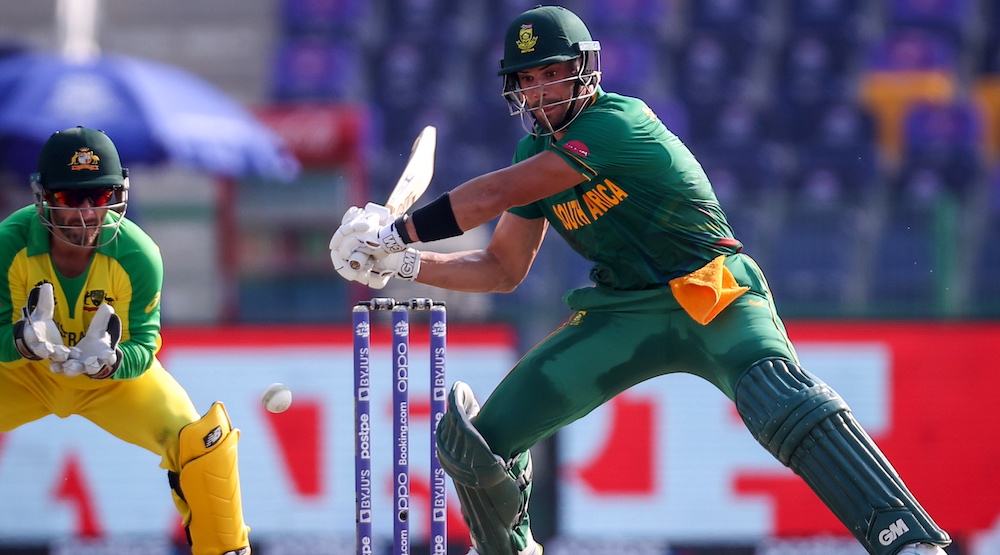
Being equipped to counter a diverse range of challenges demands a certain type of preparation, which Markram has come to appreciate over the years, particularly through tough tours such as India, where runs were hard to come by.
“I can tell you, honestly, there is no worse feeling. A few years back, me knowing that I have to sweep and that I can't just play it with a straight bat, when it's just going straight past everything.
"But deep down in my heart, I knew I couldn't sweep because I didn't upskill it. And this was obviously a few years ago when struggles against spin really sort of surfaced.
"So it's definitely quite important to realize that you have to upskill and I suppose once you go through that tough time it makes you open your eyes about it. But yeah, I would say that's the biggest thing.”
Equally important to Markram is consistency in role clarity, because it aids his preparation for a series. The shift to the middle-order was communicated to Markram, who is typically viewed as an opener and has been backed consistently to fulfil that role.
A large part of his success in the middle-order is a product of his open-mindedness, but also confidence from the coaching staff who see him in that position.
“Over the last 12 to 18 months, I've been a bit more open-minded and made more aware of the fact that I could find myself in the middle order. I suppose if a coach is putting you in that role, he backs you and thinks that you can execute that role.
"So I try to see it from that perspective. It's more fair play to the coach because if he thinks I can do it, let me put the hard work in to try and say thanks to him for the opportunity and for sort of believing that I could do that role.”
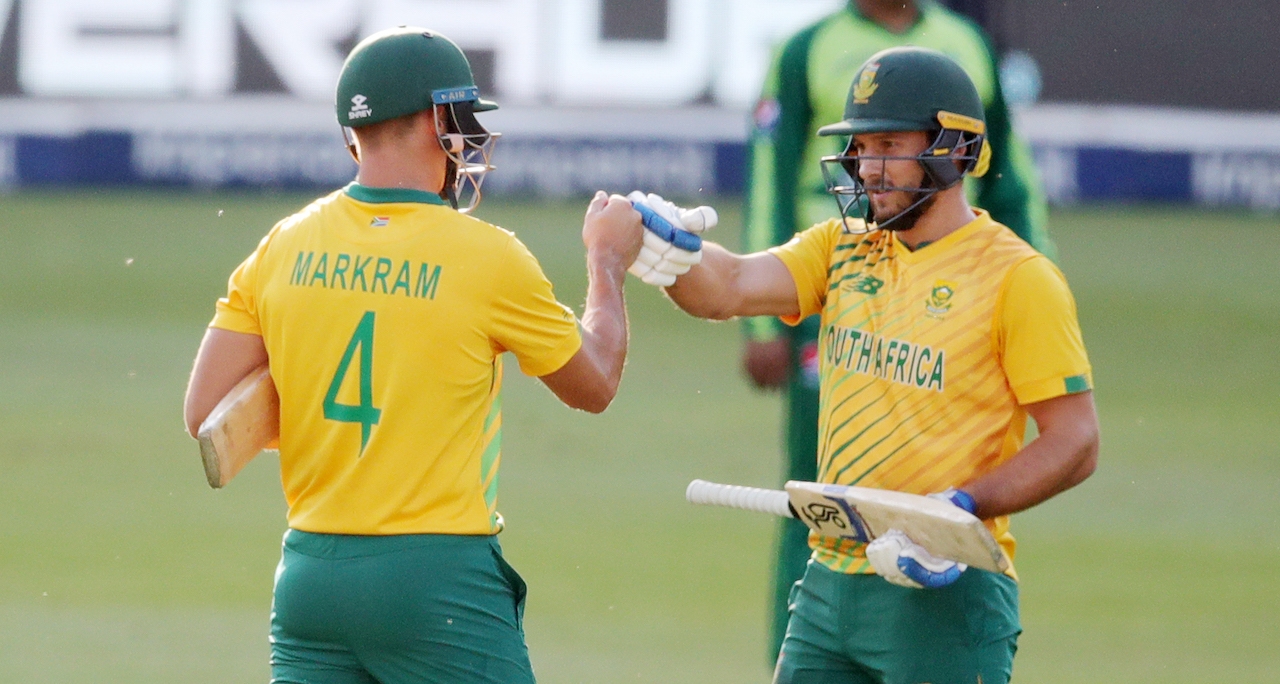
With Markram’s dominant performances in T20 cricket for South Africa this year, it’s hardly surprising that he got picked up by the Punjab Kings for the second leg of the Indian Premier League in the UAE. Apart from delivering performances, Markram had to understand how an IPL team worked fairly quickly.
“It's certainly very different there. And obviously, I didn't know what I was going into. None of the South African guys were there, so it was almost like you go straight in and you're trying to get to know people and you try to work out yourself how things operate in an IPL team. So there is obviously a lot of pressure when you are involved in a tournament like that.”
The pressure to adapt to the working of an IPL team is compounded by the fact that Markram would play as one of four overseas players allowed in each playing eleven.
As an established international player, Markram would always be under pressure to deliver, but there is the additional burden of knowing that there is plenty of Indian talent capable of performing at that level.
“If you are playing as an overseas player, there is more pressure on you to deliver the goods and to get a team over the line. But then you look around and you see some of the local Indian players that might have not even played international cricket yet and you say, 'Jeepers, I mean, he's better than me.'”
Playing seven games in the IPL was “a massive blessing in disguise” because they helped Markram’s performances for South Africa in the World Cup, where he played defining innings, particularly against Australia, the West Indies, and England.
His ability to attack bowlers right at the beginning of the innings was a standout feature, and reflected in his half-centuries against the West Indies and England, where his strike rates were close to 200.
“It was about technically not maybe changing too much but really trying to grow my own game to be able to walk into situations and if I have to get going from within my first couple of balls because that's what the team needs, then being able to trust that I've got the game for that.
"It was really about trying to upskill myself, being able to be comfortable and also still trust the fact that I can pull the trigger from the word go if needs be, but I think the only way you can trust that and feel comfortable doing it is by preparing accordingly.”
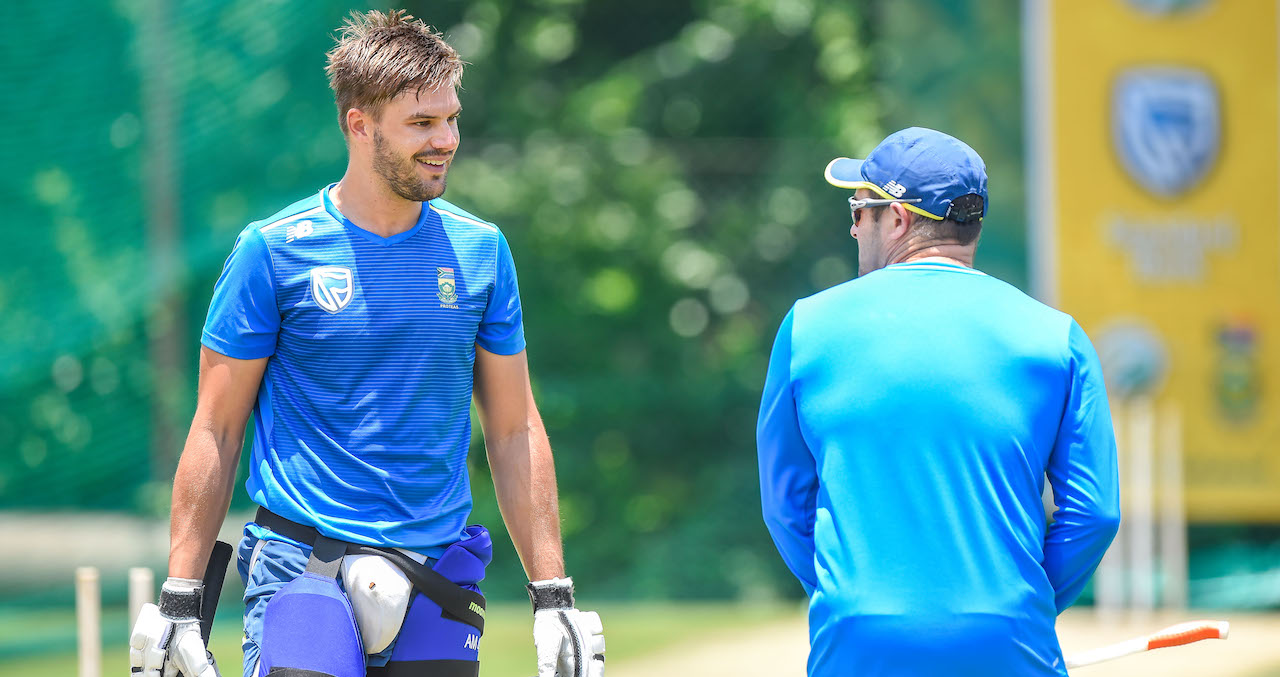
South Africa exceeded expectations at the T20 World Cup, winning four out of five games, including one against semi-finalists, England, but missed out narrowly on qualification because of a lower net run rate than eventual T20 World Cup champions Australia.
However, South Africa have gained a lot from the tournament, but most of all, it is the confidence of knowing that they can find a way to win.
“For us to win four must-win games in a World Cup is something that I believe we can take a lot of confidence from, and take it into the next World Cup and know that we might not match teams on paper, but there's something going on in this team that is just getting us over the line.”
Aiden Markram’s performances have been one of the contributing factors for South Africa’s change in fortunes in T20 cricket over the last few months, and certainly, this World Cup.
If Markram continues to show the growth he displayed in 2021, South Africa can, indeed, be strong contenders to claim the T20 World Cup in Australia in 2022.
Get More Clients With Cricket Fanatics Magazine
Cricket Fanatics Magazine has the visibility, infrastructure, expertise and toolset to automate your marketing and branding.
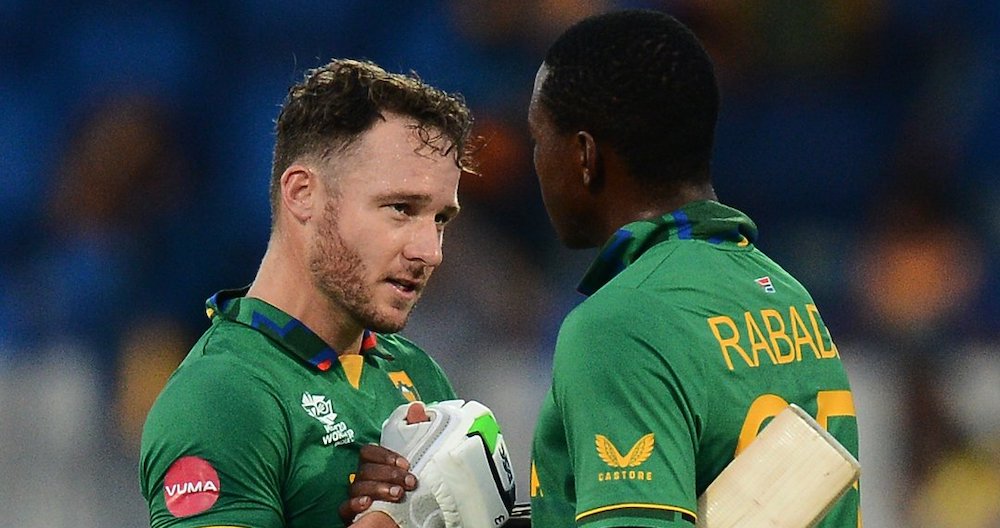
BAVUMA IMPRESSED BY SA’S ABILITY TO PLAY PRESSURE MOMENTS
“Our ability to play in pressure moments, that’s something we’ve done exceptionally well,” said South Africa captain, Temba Bavuma, upon his arrival to South Africa after the team narrowly missed out on qualifying for the semi-finals of the T20 World Cup in the UAE.
Bavuma heaped praise on his bowlers for their consistent performances over a long period of time.
“The bowling has been exceptional. Our bowling unit is a world-class one.”
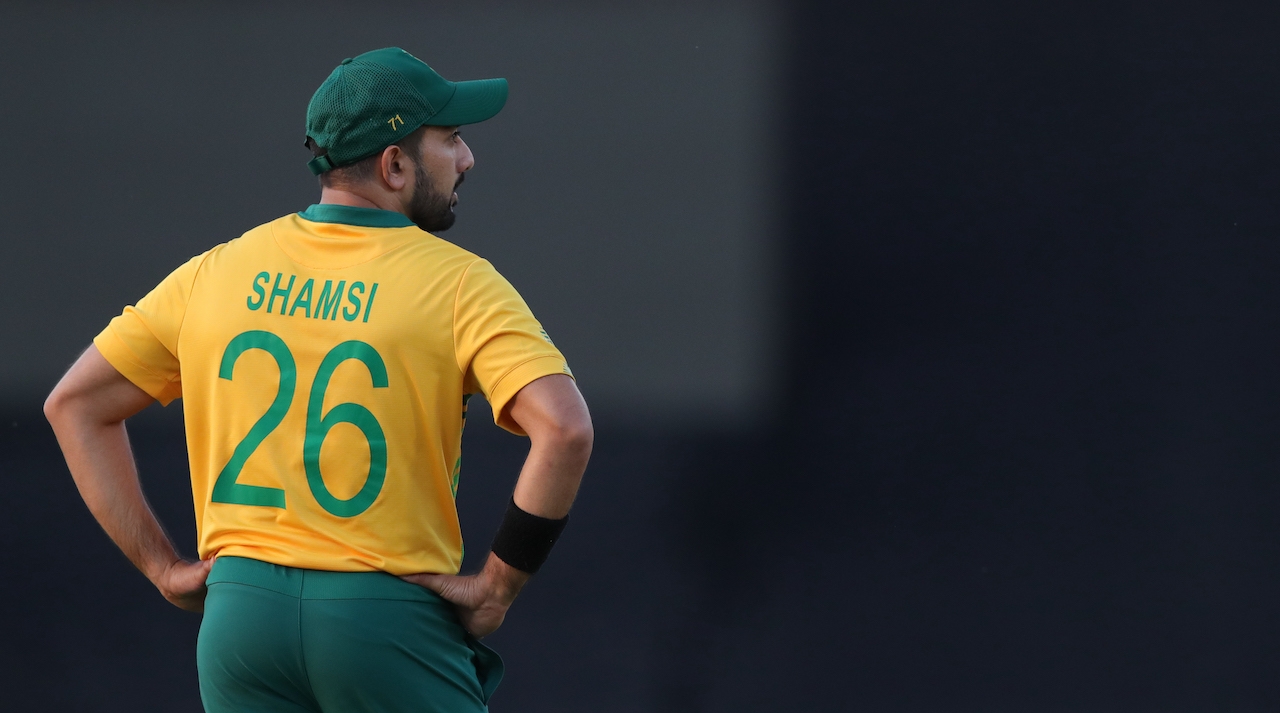
However, he pointed out that there were concerns in the batting department.
“Our batting as a whole isn’t world-class. From a consistency point of view, we can do a lot more in that regard.”
After exceeding expectations this tournament, Bavuma wants to make sure South Africa “go from strength to strength.”
There has been a conversation surrounding South Africa’s net run rate against Bangladesh after the team chased down a paltry 85 runs in 13 runs.
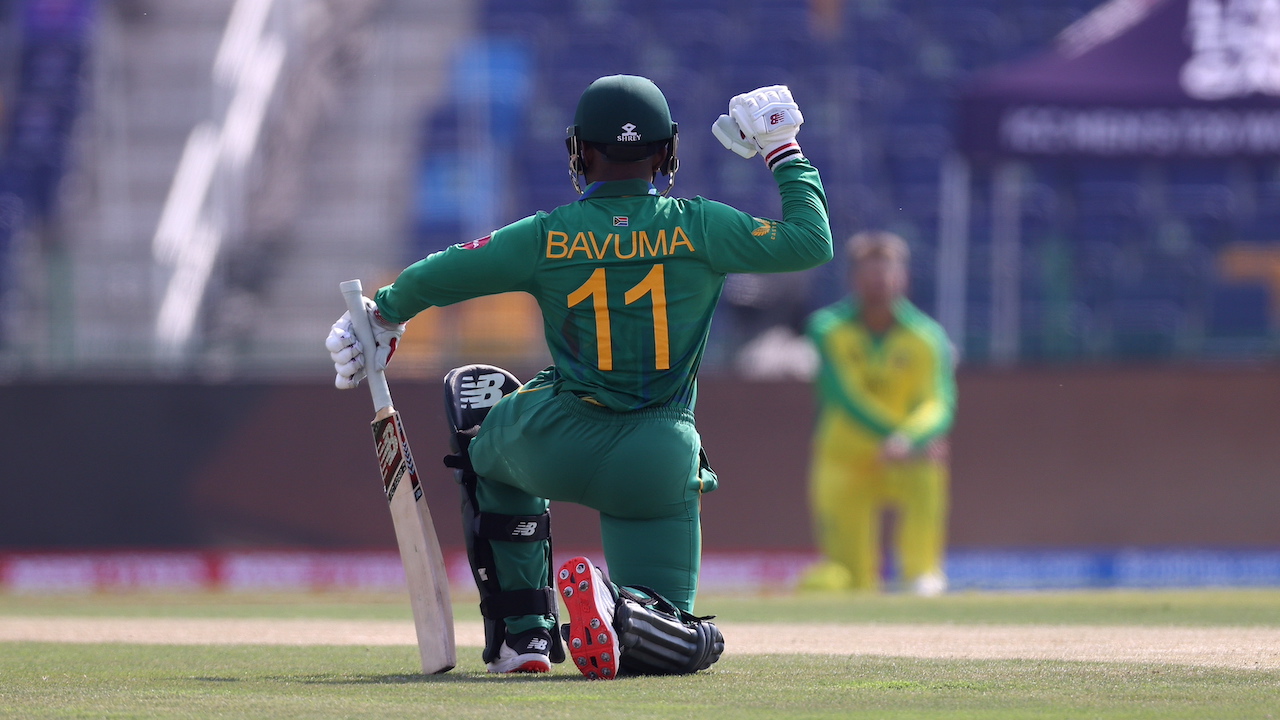
Bavuma conceded, “Never really considered that (NRR) heavily.” He continued, “We always knew in our group that we would have to play our best type of cricket.”
Bavuma’s on-field and off-field leadership have received praise from the entire cricketing fraternity.
“Matters that happened off the field that put us under pressure. We were able to get through those moments.”
He continued, “I’m a lot more confident with the team as well. The backing, confidence has definitely grown. We’re in a better space as a team going forward.”
Bavuma is now looking forward to the India series, particularly from the perspective of the Test team.
“We know that the India series is a big one for us, especially as a Test team. We will be expecting that a number of players will stand up to the pressure that India will bring,” said Bavuma.
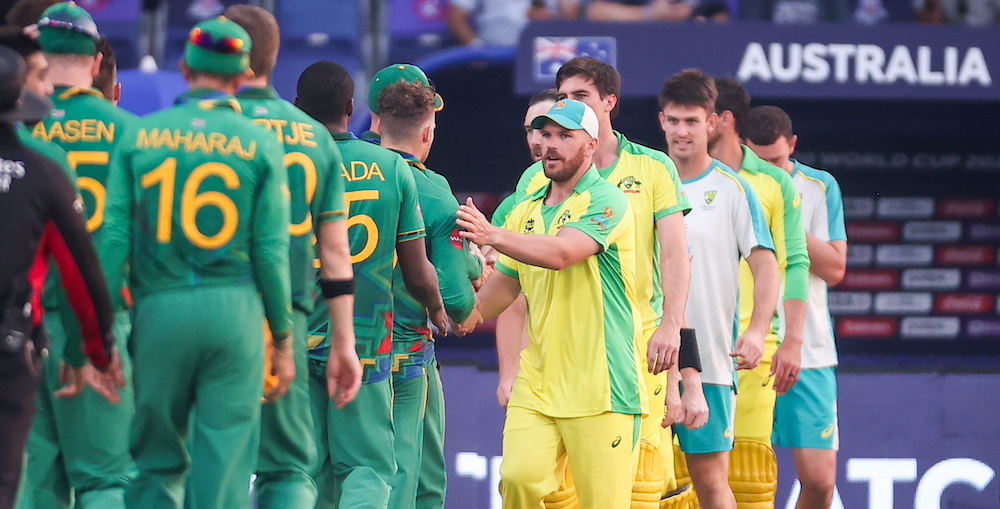
By Ongama Gcwabe
Former Proteas Assistant coach (performance) of over eleven years, Prasanna Agoram, has identified the planning to have been faulty and as the main reason behind the Proteas early exit from the 2021 T20 World Cup.
The Proteas have crashed out of the T20 World Cup yet again, but this time around it was not because of a failure to handle big pressure games but it was on net run rate.
Yes, a World Cup campaign that features 4 wins out of 5 matches is generally a good campaign but this time around for the Proteas, it wasn’t good enough to get them through to the semi-finals of the World Cup.
Personally, I was not interested to refer to the Bangladesh game as a reason why we didn’t qualify. For me, the most important thing was the fact that the only team that beat us qualified ahead of us. All this thinking was before I had a chat with Prasanna Agoram at St George's Park about the World Cup.
Agoram is now the High-Performance manager for Gauteng Cricket (both men and women) and works with the Lions alongside head coach Wandile Gwavu, assistant coach Jimmy Kgamadi and bowling coach Piet Botha. He works with key players like Ryan Rickelton, Lutho Sipamla and Sisanda Magala to name a few.
I asked Agoram how he felt about the Proteas 2021 T20 World Cup journey, and he replied:
“I want to tell you only one thing – the numbers, the strategies and the calculators play a massive role in a team environment and after I left no one replaced me,” Agoram told Cricket Fanatics Magazine in an exclusive interview.
“That is where the difference was, when you bowl out a team like Bangladesh for 84, had I been part of the team, the first thing I would’ve told them is that we needed to chase that score in seven overs.”
What he meant is that it was rather unsafe and unfavourable for us to go to the World Cup without an experienced team video analyst that could give the team insight on what was expected of them from a numbers point of view.
Clearly, that was the missing piece of the puzzle in this Proteas coaching team because it was known right after the thriller game against Sri Lanka that South Africa had to beat Bangladesh by some margin because of the possibility of a loss or a narrow victory against the strongest team in the tournament in England.
“We were knocked out of the World Cup because of a huge miscalculation, and you cannot hide that fact. I believe in something- there should be a space for a ‘laptop’ in a men’s senior side particularly with how the game has evolved,” said Agoram.
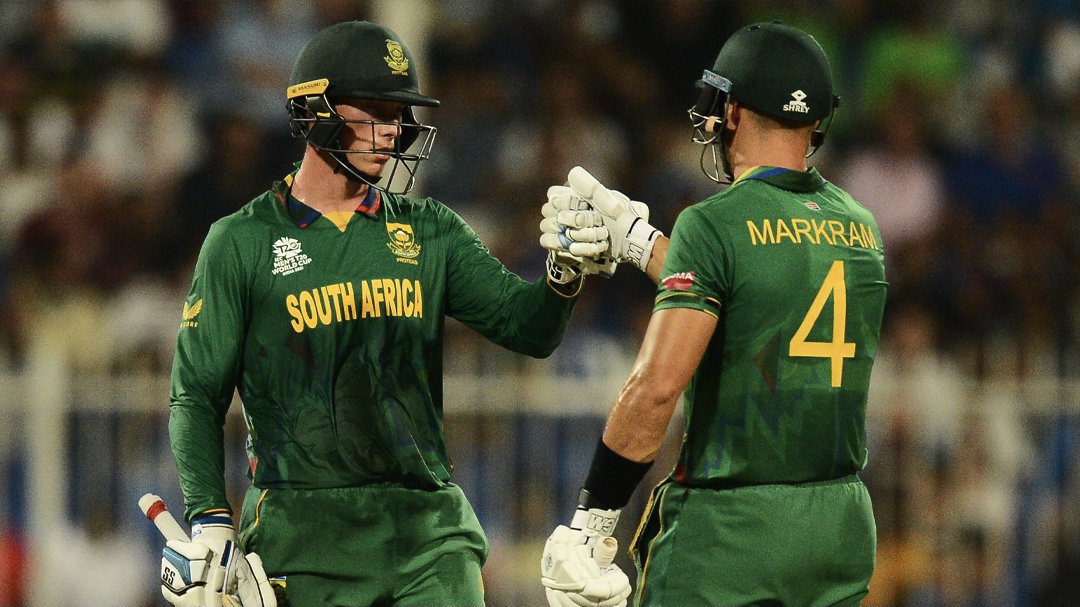
In the interview, I was wondering as to how it was possible for us to go to the UAE without ‘P-Dog’ as he was with the side for such a long time and because of the relationship he has with the current players in the side.
Who did we think was going to bring what Prasanna brings to the Proteas team?
For the past three days, I’ve had the opportunity to watch him analyse the Warriors vs Lions 4-Day Series encounter in Gqeberha and my word the man is good at his job!
With only one operating camera, the Lions players would come to the media centre where Agoram was stationed for this game and look for guidance and tactics they needed to get right to win the match.
What I was impressed with was the depth to which his conversations with players would go, he was not only offering technical and tactical advice, but he was going as far as encouraging the players not to think small but to think big and to continue to dream of representing the Proteas one day.
I asked him:
Do you think something could’ve been done or should’ve been done to get you on that plane to Abu Dhabi with the Proteas?
“Probably that is a decision that the management should’ve taken, probably. Now we’ve seen the number of players who come to me for video analysis in a domestic game where there’s only one camera to work with. Now you can imagine how much more it is needed for an international game,” he replied.
“We have not lost out on skill, we have not lost out on talent, we have not lost out on wins, we have lost out on planning. You will agree with me if you look at the Proteas World Cup campaign.
“India chased 85 against Scotland in six overs, Australia chased 73 against Bangladesh in 6 overs and we take 13.4 overs to chase 84. Can you see the difference in the thinking?”
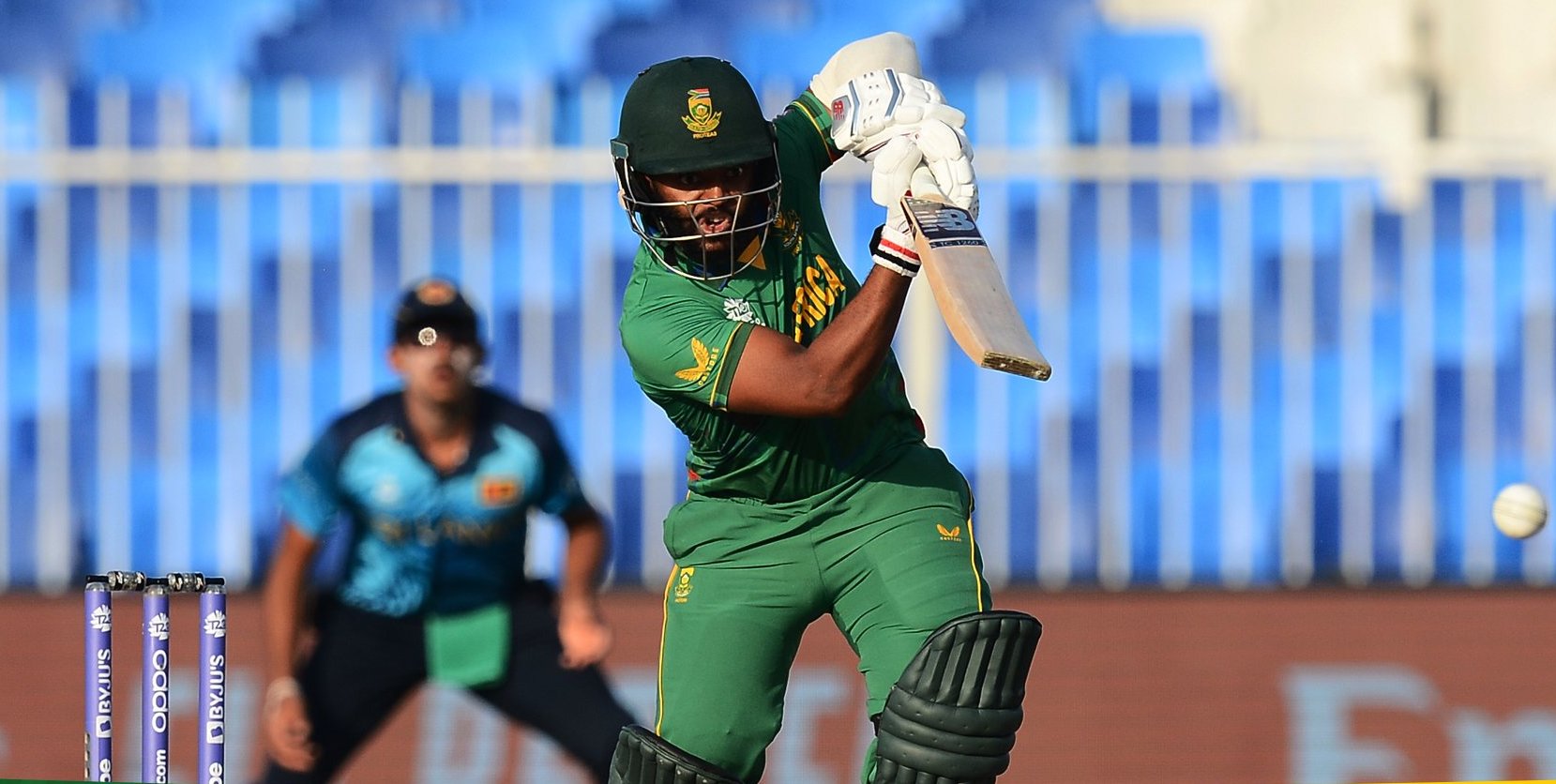
It was at this point that I got to understand the reason why many people kept on referring back to the Bangladesh game as the game we let the World Cup slip from our hands. Agoram continued to give insight on what should have been done leading up to that game.
“The information that should’ve been communicated to players was to say – ‘Look, today is the last day of the tournament, you get it done in 42 balls or else let’s go back home tomorrow because there’s no point in playing against England.’
“In spite of scoring 189 against that bowling attack with a young side, when you see the table, we had to restrict them to 131, now tell me is that realistically possible? The whole country knows where we lost the World Cup.”
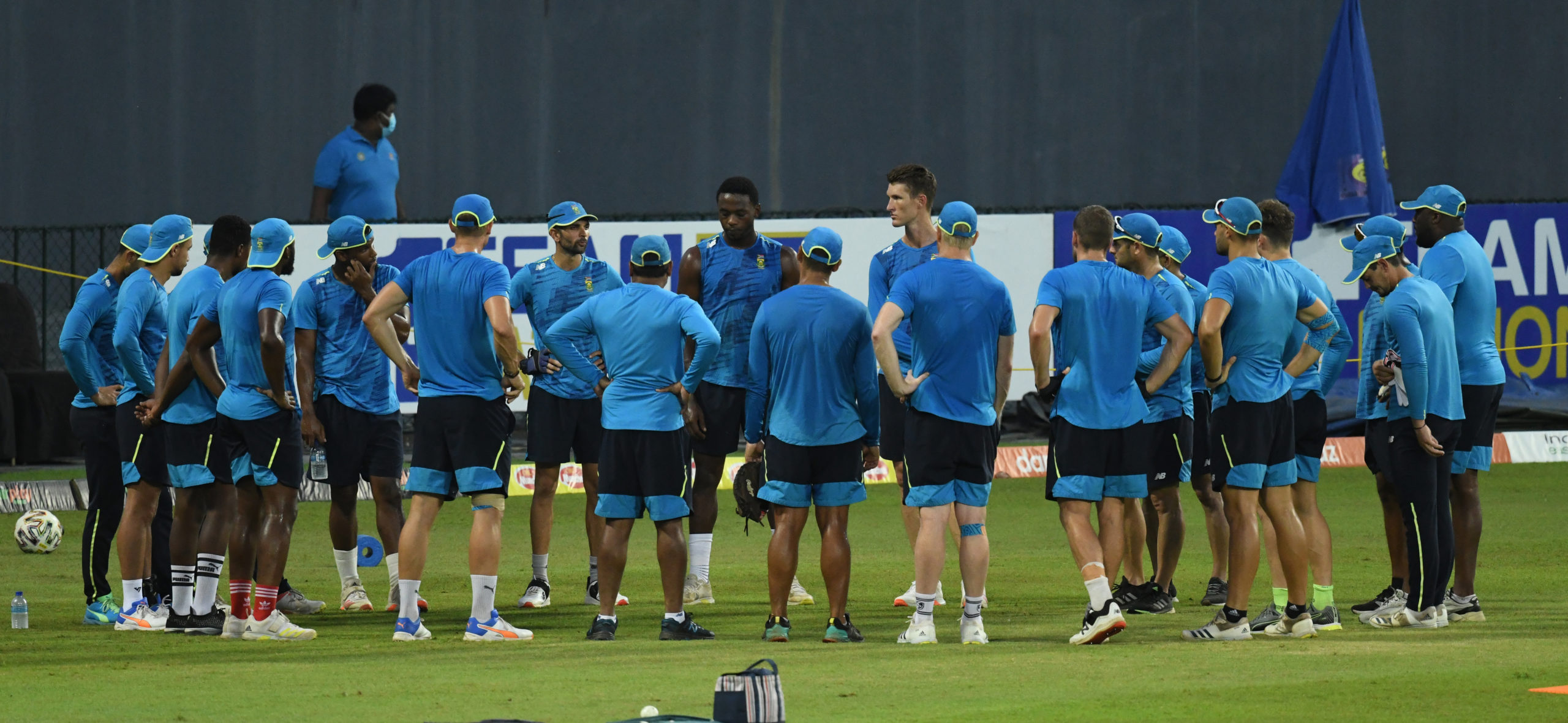
Boucher Pleased with Proteas performance
“The low was not getting further in the competition,” said South African Head Coach, Mark Boucher, in his arrival press conference upon the Proteas’ return to South Africa after the team missed out narrowly on qualifying for the semi-finals of the T20 World Cup in the UAE.
While Boucher was disappointed that the team was unable to qualify for the semi-finals of the tournament, he was pleased with the team’s performances in crunch situations.
“We knew we were under pressure in every game,” said Boucher. Additionally, Boucher said, “The mental shift for me is about being smart in different conditions.”
With the next T20 World cup slated to be held in Australia next year, Boucher indicated that the team might need an additional seamer, given the conditions on offer.
Workload management will be a priority for Boucher in the coming month, seeing that many of the South African players have been in bio-bubble environments continuously since the tour of the West Indies.
“The balance of resting guys and getting them ready for the big summer,” which includes an all-format series against India.
Although South Africa will want to win the red-ball and white-ball series against India, the team needs to put its best foot forward in the series against the Netherlands as well because they are “games we need to win to qualify” for the 50-over World Cup.
In preparation for the India tour, there are plans to have a mini camp and a practice game starting on the 4th of December.
Despite the busy scheduling, Boucher is confident that the team has “enough time to get prepared for the first Test.”
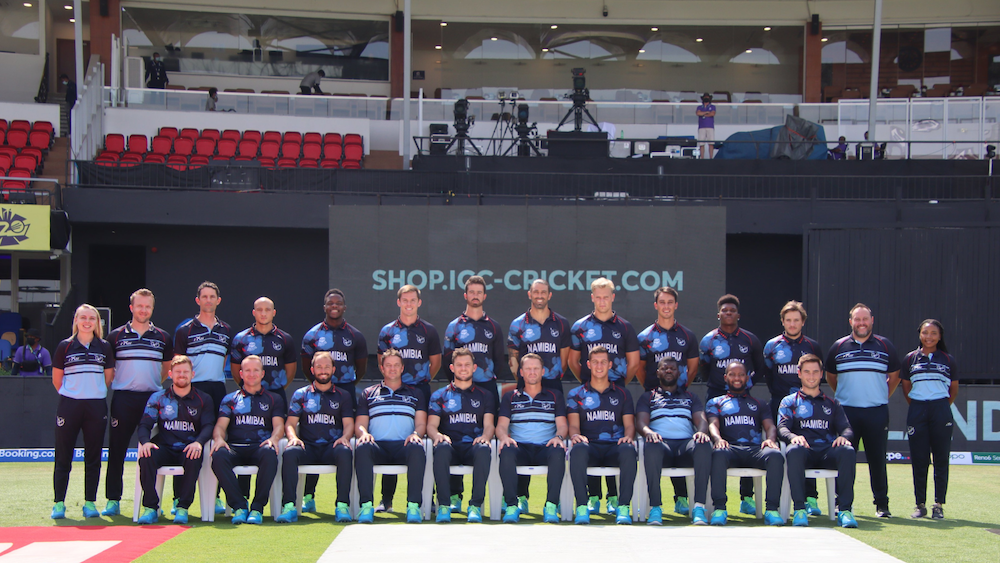
Richard Das Neves gains ‘refreshing’ perspective from Namibia coaching stint
By Marc Jacobson
Namibia managed to turn many heads and had produced some scintillating performances at the recent T20 World Cup in the UAE, which was subsequently won by Australia.
Having qualified for their first-ever World Cup in any format by beating Ireland and Netherlands on their way to progressing to the Super 12 stages, Namibia punched above their weight and played with aplomb, thanks largely to their coaching set-up.
They beat Scotland in their first Super 12 encounter, before putting in respectable performances in their losses to cricketing powerhouses Afghanistan, Pakistan, New Zealand and India respectively.
For a country as sparsely populated as them and with such limited resources at their disposal, they managed to make a name for themselves in a code in which many onlookers didn’t even know they existed.
Renowned South African coach Richard Das Neves, who formerly coached Easterns and is currently involved with the Titans, was at the helm for Namibia during the world showpiece and for him, it was a “dream come true” experience.
“From a coaching perspective it was a realization of a boyhood dream to go to a World Cup,” Das Neves told Cricket Fanatics Magazine.
“I learnt a lot about myself and from some of the best in the world and how they go about their business. It was something I’d hope to impart on in the domestic scene in South Africa.”
Das Neves undertook a dual role with Namibia, having served as a biokineticist in strength and conditioning and as a coach.
Having been tasked to fulfil his duties for seven weeks with the outfit, he said the exploits offered him a renewed perspective in terms of his coaching vision.
“It was very refreshing to be involved with a group of individuals who really just played for the team and are grateful for every opportunity that comes their way.
“45 days in a bubble is hard work and I have a lot of respect for sportsmen who’re dealing with this at the moment,” he added that he was “grateful” to have “rubbed shoulders with the best in the world”.
The 34-year-old said due to this “bubble life” there wasn’t much interaction between the different sides, but that he was able to grasp the finer details of how the teams varied their approaches to the game.
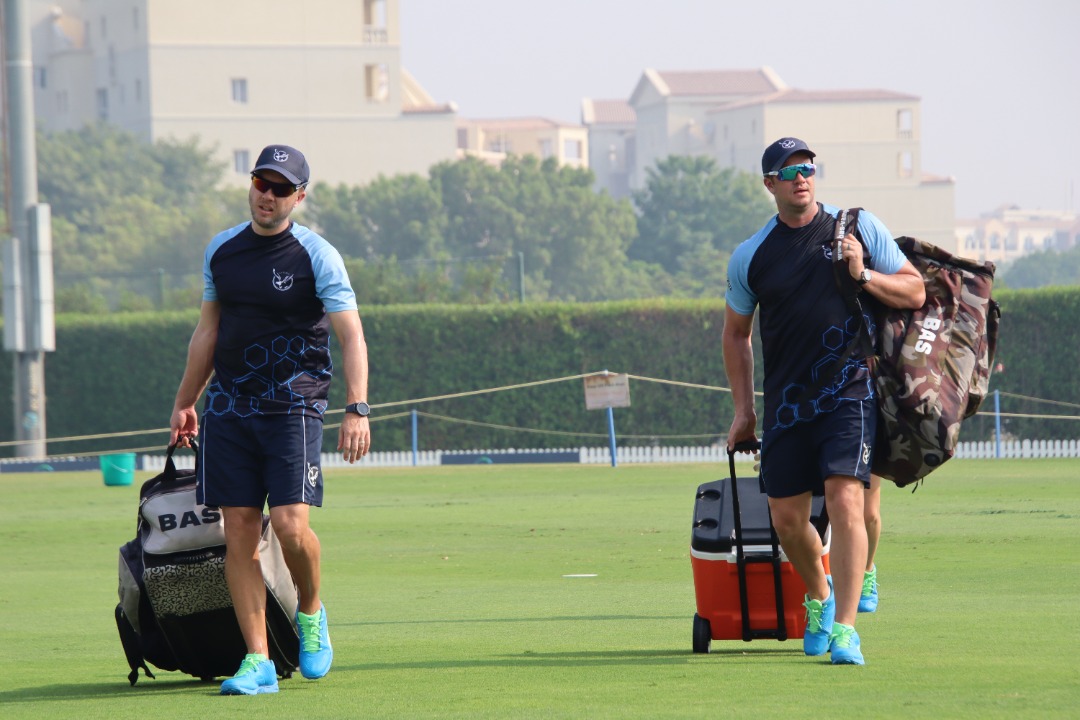
“A ‘one-size-fits all' approach doesn’t work in international cricket,” he said. “The way the West Indies, Australia, England, SA, Pakistan or India all went about their stuff was different. They all have their own way.
“That’s driven by the coaching staff and the group of players within each side. The common denominator is work ethic and when you see the guys go about their stuff for two to three hours in training or preparation for games, it was next level.”
A part of this process was the thorough analysis that ought to be conducted prior to matches, Das Neves explained.
“Another big learning was trying to do analysis and work out game plans against the opposition.
“We were fortunate enough to have an analyst with us in Riaan Minnie, who works for Cricket Namibia, and he’s really passionate about his job. He provided a helluva lot of information for the guys.
“Coming up with those game plans and working out certain scenarios of what we want to do against certain batters and how we want to counter-attack certain bowlers was really exciting.
“It was really nice to see when game plans work and what the results ended up being when we veered away from those game plans. There was a lot that went into each game we played.”
Das Neves added that he was pleasantly surprised to witness how the game has developed and continues to develop among the associate cricket nations in the world.
“By seeing teams like Namibia and Scotland going to the Super 12 and holding their own, I don’t see why they can’t become full members with further investment, planning and infrastructure [being implemented] within these regions.
“Sometimes you had to pinch yourself when you see how Babar Azam or Mohammad Rizwan go about their business, or how guys like Tim Southee or Trent Boult execute their skills and set their fields – that was next level.
“That pushes the benchmark up for a team like Namibia from where they thought international cricket was, to where it actually is.
“Now the challenge for them in the next 12 months before the next World Cup is to really test their skills and get it up to that level.”
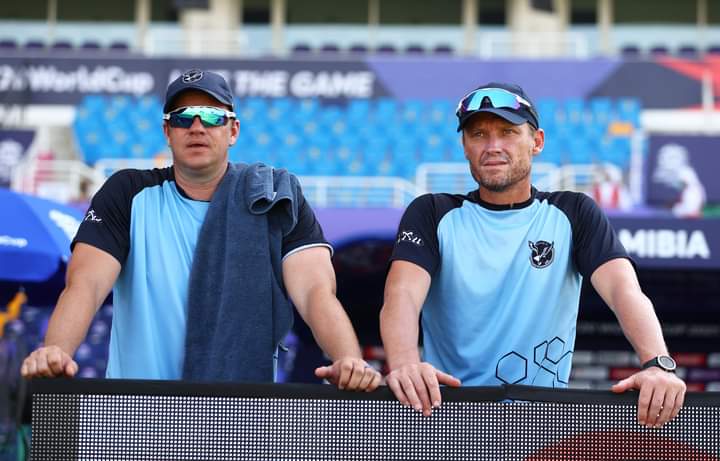
Das Neves was appointed in his role with Namibia on a short-term deal for the World Cup only, with head coach Pierre de Bruyn and former Proteas all-rounder Albie Morkel, as a consultant, staying on in a full-time capacity.
He gave large amounts of credit to them for their efforts in adopting and implementing long-term goals for Namibian cricket.
Across the border, the Proteas, the so-called ‘bigger brothers’ of Namibia, performed strongly at the World Cup, according to Das Neves, especially after having won four out of their five games but were “unlucky to not make the semi-finals”.
The Proteas only lost narrowly to eventual champions Australia in their first outing, before winning the rest of their four Group 1 games, including a triumph over then tournament favourites England.
After setting an undernourished total, the Proteas “showed a lot of fight to take it to the last couple of balls against Australia”, Das Neves pointed out.
“I think the team performed well. I was particularly impressed with Aiden [Markram], who is generally an opener and the way he performed after moving down to number 4 was really special.
“It seems like we probably found something there that we can work on in white-ball cricket, while he can maybe still go up top in Test cricket. But his overall game has just gone to another level in the last 12 months and that can only bode well for SA cricket.
“Obviously Rassie [van der Dussen] had a good campaign as well and from a bowling side, Shamo (Tabraiz Shamsi) and Keshav [Maharaj], as two spinners, had great tournaments and that’s really something we can build on as well.”
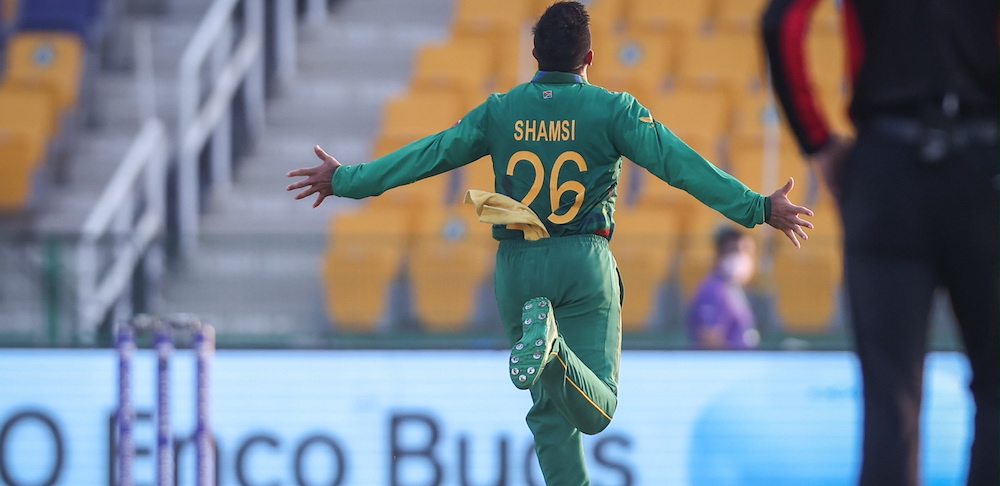
He also gave notable mentions to pacers Kagiso Rabada and Anrich Nortje, as well as David Miller’s big match temperament, as players who’ve played their parts into pulling the team together.
“I think overall the team is in quite a good space and with a little bit of backing in the next 12 months, they’ll be competing come the next World Cup.
“We beat the world No 1 ranked side, England, and with a bit of luck in that first game we could’ve been in the final. Overall I’m proud as a South African of what the guys did.”
Das Neves, who hails from Johannesburg and was schooled at King Edward Secondary, noted what SA needs in order to formulate a winning recipe is “stability”, both on and off the field.
“There’s obviously been a lot happening in SA cricket both on and off the field in the last 24 months and I think it’s really just crying out for some stability.
“From top to bottom, let’s all just rally together and get behind the guys and give them the support they deserve and need.”
All Namibia photos from: https://twitter.com/CricketNamibia1
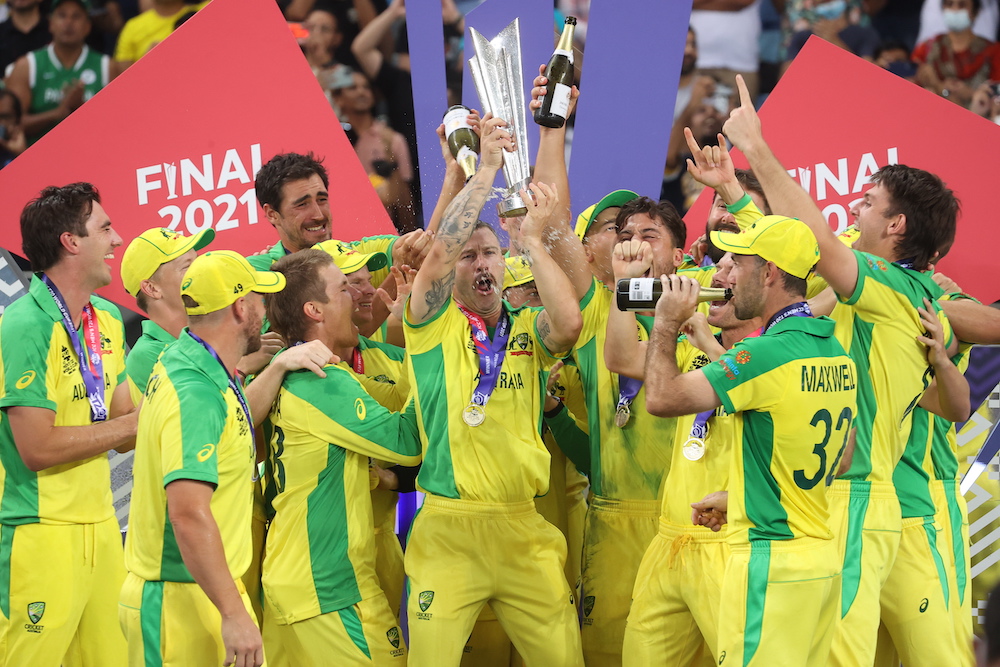
The Baggy Greens are big on match temperament
By Alasdair Fraser
Australia always manages to find their mojo when it comes to big ICC events like the Cricket World Cup, and against all odds they delivered when it mattered to be crowned the new T20 world champions.
Cast your mind back to Newlands 2018. Autumn is near and the enthralling Test series between old foes South Africa and Australia is reaching boiling point. The Baggy Greens seem to be getting agitated by the over as Aiden Markram thwarts their much-vaunted pace attack.
We all know what happened before and after tea during that cloudy and balmy Saturday afternoon of the third Test in Cape Town. All hell broke loose, and it seemed the end for Australian cricket. How could they bounce back from this one?
Well, they have and in quite dramatic fashion by seeing off a powerful New Zealand unit. As a Protea fan, it’s a tough pill to swallow. Our demise at World Cups has often led to Australia winning the tournament – one that still haunts Proteas to this day.
If only Lance Klusener had stayed in his crease and calmly knocked off that run with the remaining two balls of THAT semi-final.
This Aussie outfit weren’t fancied to claim top honours in the T20 arena. In August, they were skittled for their 62 – their lowest T20 score ever – by Bangladesh who claimed a 4-1 series win. You would be forgiven for thinking that the Baggy Greens weren’t going to feature in 2021, especially with their poor showing – by their standards – at T20 World Cups.
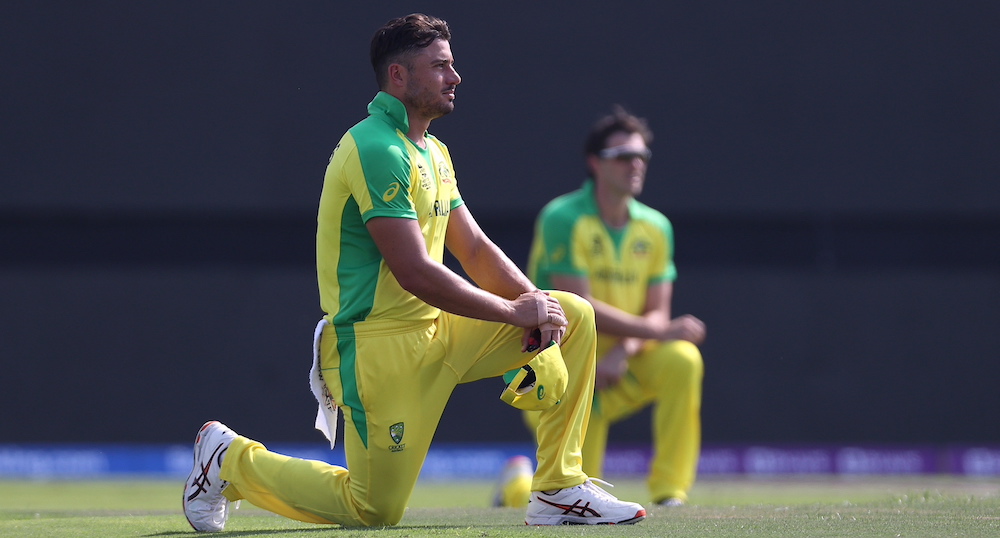
As Proteas fans we can take a lot of positives, and a fair bit of solace in knowing that the only team we lost to would eventually go on to be crowned World Champions. The Proteas’ below-par total did become a bit of a struggle for the Baggy Greens, but admittedly Australia were the better team on the day.
In the buildup to the opening match of the Super 12 Series, many pundits agreed that South Africa and Australia were similar teams, strategy-wise. Both had pace bowlers who could mix it up, but also relied on their raw pace to get the job done.
Glenn Maxwell operated in similar fashion to Aiden Markram’s spin bowling at the beginning of the innings during the all-important Power Plays. While both sides relied heavily on bringing a spinning strike bowler in the early to middle overs.
The batting department also had similar types of batting styles and methodologies – although Quinton de Kock did not reach the great heights of David Warner. Mentally, both sides play the same brand of cricket with a certain aggression that people expect from Aussies and Saffas on the cricket field.
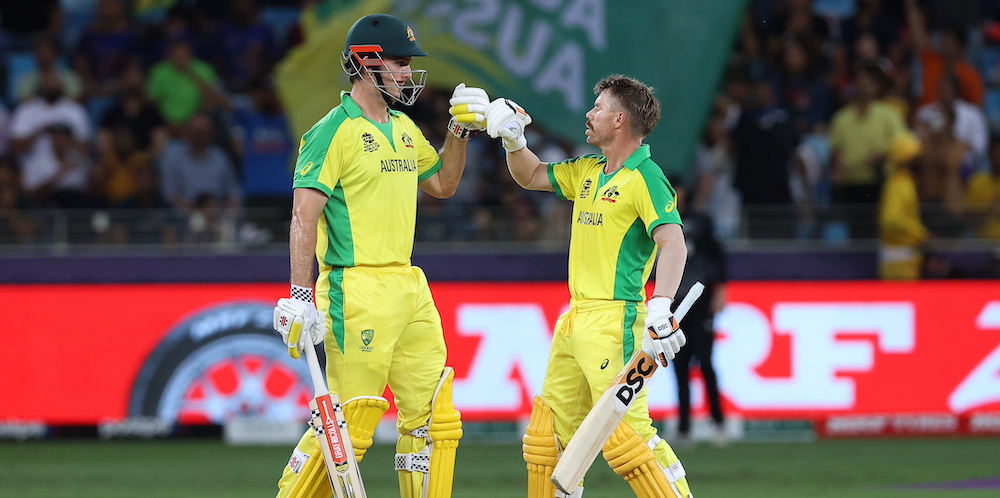
But the difference is that South Africa are mentally a long way from playing the type of World Cup tournament cricket that we’ve seen from the Aussies since their first World Cup win in 1987.
This is the only ingredient missing from the Proteas because the players are there, and we are seeing a strong unit being built – one that hopefully goes all the way in Australia next year.
What is telling is that the players named in the T20 World Cup’s Most Valuable Team of the Tournament, five out of the 11 were Aussies and South Africans, with Josh Hazlewood, David Warner, Adam Zampa, Aiden Markram and Anrich Nortje showing their value.
It further illustrates that the Proteas have genuine match-winners in their team, and you could easily add several other players to the mix. The most encouraging, though, is that Markram and Nortje are still young and will get even better with age.
But white-ball cricket is a funny thing, and this Australia annexation of the T20 World Cup goes to show that anything is possible, and that the form book goes out the window. It’s a lottery – one that needs a tough mental edge, which the Baggy Greens seem to have in abundance.
There is a lesson to be learned from that, and hopefully the Proteas recognise it and make good on their potential in Australia next year.
Advertisement
Ezra Poole's Online Wicketkeeping Academy
Learn how to Master The Craft of Wicketkeeping Without Having to Hire a Full-Time Personal Coach.
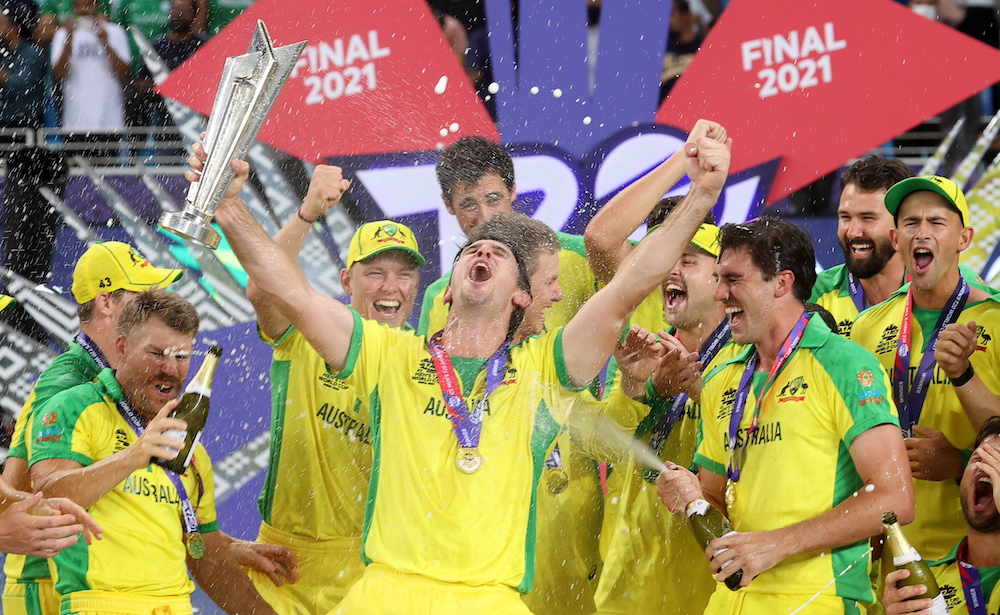
Lessons From The 2021 ICC T20 World Cup: Who Dares Wins?
By Aaron Viles
Well, here we are folks, the metaphorical curtain has closed on the 2021 ICC T20 World Cup and for the first time in their history, Australia will head into their home tournament in 2022 as the World Champions of the T20I format.
I think it’s safe to say that almost nobody, myself very much included, ever saw that result coming but we have to give Justin Langer, Aaron Finch and the rest of that Australian team immense plaudits for the way in which they bounced back so brilliantly after suffering that humiliating 8 wicket defeat at the hands of arch rivals England during the Super 12’s phase in Dubai.
However, now that the 2021 iteration of the T20 World Cup has reached its conclusion and the dust is beginning to settle on the Aussies’ remarkable victory we must ask ourselves one rather pressing question…
What lessons did we actually learn from this year’s tournament?
I suppose first and foremost, we learnt that over-the-top stadium announcers shouldn’t be allowed within 100 miles of an ICC tournament ever again but more importantly, we also learnt never to underestimate Australia, a nation which ICC trophies seemingly tend to gravitate towards whenever a major tournament begins to appear on the horizon.
Before the 2021 T20 World Cup Australia were ranked at a modest 6th place in the ICC rankings, had just come off of the back of a 4-1 mauling from Bangladesh in Dhaka and were completely written off by a number of major media outlets before a ball was even bowled in the UAE.
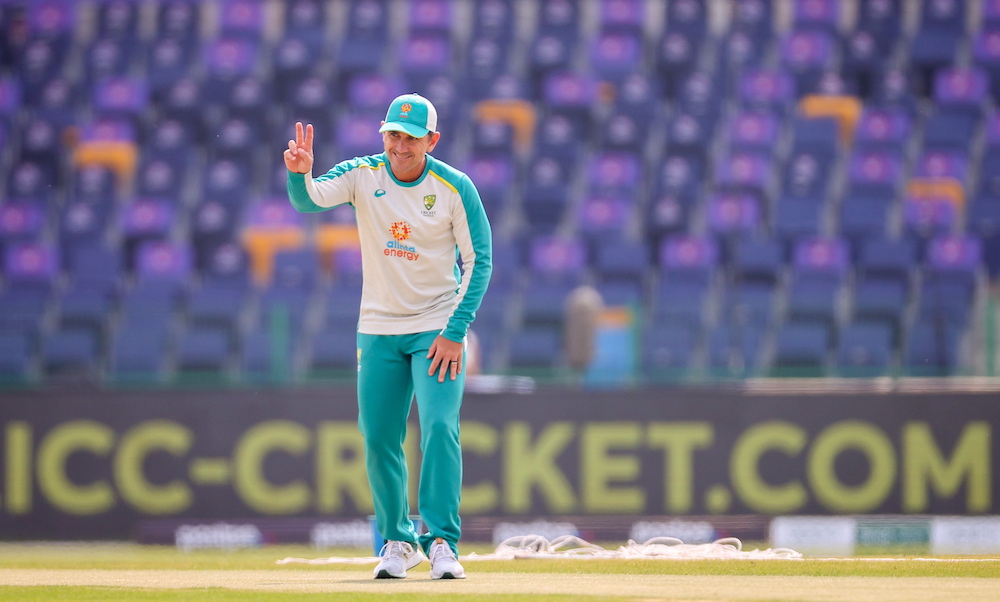
The conditions were never meant to suit them. Their batting line-up was too unbalanced. Their bowlers were simply not specialised enough for the format. Their approach to T20 cricket was borderline archaic.
This team surely couldn’t win the T20 World Cup, could they?
And yet here we are, with the Men in Gold basking in the aftermath of a clinical 8 wicket demolition of Antipodean rivals New Zealand in Sunday’s Final as they make their way back to Australia with yet another ICC trophy clasped firmly in their hands.
But you may be thinking to yourself, Aaron, this is all well and good but this doesn’t explain how one of the most unfancied teams in this year’s competition upset the odds and sealed their maiden T20 World Cup trophy. Why was it Australia who won as opposed to a team like England or Pakistan?
Well in order to answer that enquiry, I have to turn to my secondary question for this particular piece; How did Australia actually win the 2021 ICC T20 World Cup?
Firstly, they won the toss and unsurprisingly decided to bat second in all but one of their games, a rather useful strategy considering just how favourable the pitches in the UAE were to teams chasing in this edition of the tournament.
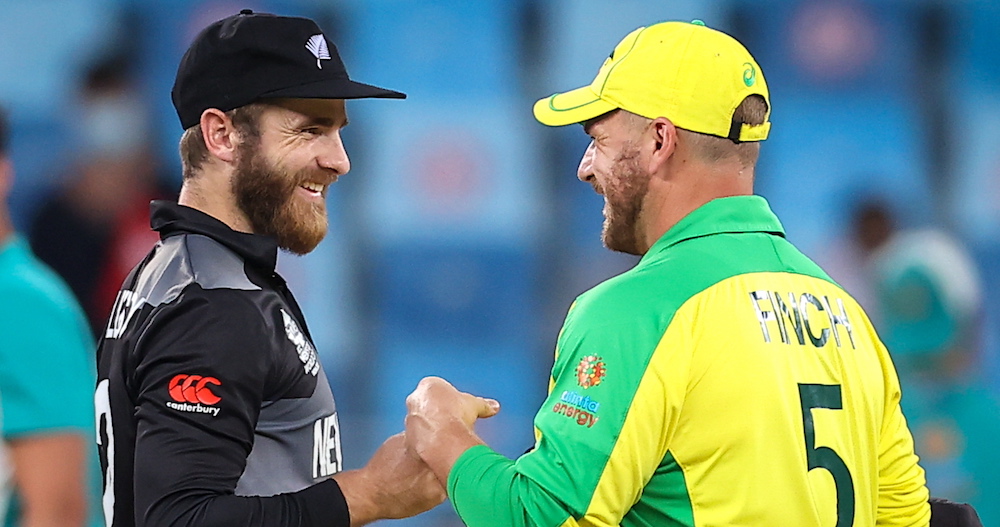
Granted, the toss was a massive factor behind a lot of teams’ success in this year’s T20 World Cup, the fact that 65.9% of games were won by the team that batted second reinforces this concept, but that bit of information alone doesn’t explain how the Aussies went from annihilation at the hands of England to lifting the trophy within the space of just 15 days.
Aaron Finch’s post-match interview immediately after the Final itself however does provide a bit more insight, especially when he exclaimed that Australia had “played cricket where we put teams on the back foot because we were aggressive”.
In my opinion at least, it’s this slither of information which holds the key to success ahead of next year’s tournament Down Under.
In the chaotic and unpredictable world of T20 cricket it is absolutely pivotal to gain the upper hand as quickly as you can, whether that’s with the bat or indeed the ball in hand as the opposition, for the most part, simply don’t have the time to regather their resources and wrestle back control of the momentum in the same way that they can in Test or ODI cricket.
This is why T20 cricket is sometimes known as the ‘Great Leveller’ of our game as lower ranked or lesser fancied sides often have a greater chance of causing an upset due to the shortened nature of the format.
All it takes is one knock of true substance, such as Chris Greaves’ quickfire 45 from 28 balls at Al Amerat, and all of a sudden an associate nation such as Scotland (currently ranked 14th in the ICC T20I rankings) are creating an upset by beating full member Bangladesh (ranked 8th) by a margin of 6 runs.
Due to this enigmatic nature of the format, on more seam conducive pitches in Australia teams will be looking to display more aggression during the powerplay, therefore putting early pressure onto opposition bowling attacks to force a breakthrough and thus taking control of the initiative heading into the middle overs.
Admittedly, this is a whole lot easier said than done but to quote the motto of the Special Air Service, the UK’s world-renowned special forces unit, ‘Who Dares Wins’.

The successful teams in next year’s tournament will attack the powerplay with ferocity, they’ll be adaptable with their bowling and fielding plans, offering proactive ways to gain the initiative when the going gets tough and they’ll display boldness during the death overs, much in the same way that Matthew Wade and Daryl Mitchell did during this year’s semi-finals.
This approach won’t always pay off, in fact quite often we see teams such as the West Indies and Sri Lanka get skittled for lowly totals whilst trying to play this brand of cricket, but when the pieces fall into place and it does pay off, the results are clear for all to see.
So, with all of that in mind, we go back to the original question at hand, what lessons can we learn from the 2021 T20 World Cup to take into the 2022 iteration?
Well, we learnt that T20I rankings are rendered almost obsolete in major tournaments, we learnt that you should never write teams off too early, and we also learnt that it’s better to risk the aggressive route as opposed to playing a safe, perhaps somewhat overly conservative brand of cricket and living to regret it later.
Therefore, my advice to each of the teams heading to Australia next year is as follows:
Be daring, be proactive and be bold with your gameplans; funny things can happen in the T20I arena.
Seize the initiative and put the opposition on the back foot as and when you can.
Don’t be afraid of failure, instead learn to embrace it.
And finally, remember those three simple words…
Who. Dares. Wins.
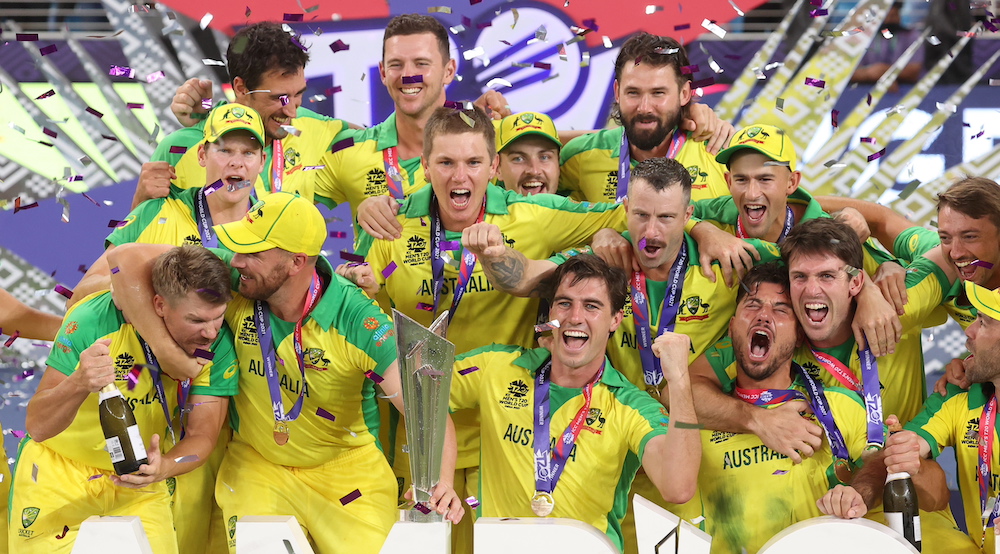
T20 World Cup Magic Moments
By Abhai Sawkar
Australia put together another clinical display of high-quality cricket to secure the silverware, and New Zealand did well to keep it competitive for much of the game.
During the semifinals, both sides overcame opponents whom most considered to be favorites, and that only made the final more of a must-watch.
It was a rematch of the 2015 ODI World Cup final, and the result, for all intents and purposes, was quite similar.
Now that the dust has settled on an action-packed global event, let’s hit the rewind button and recap some of the highlights to savor.
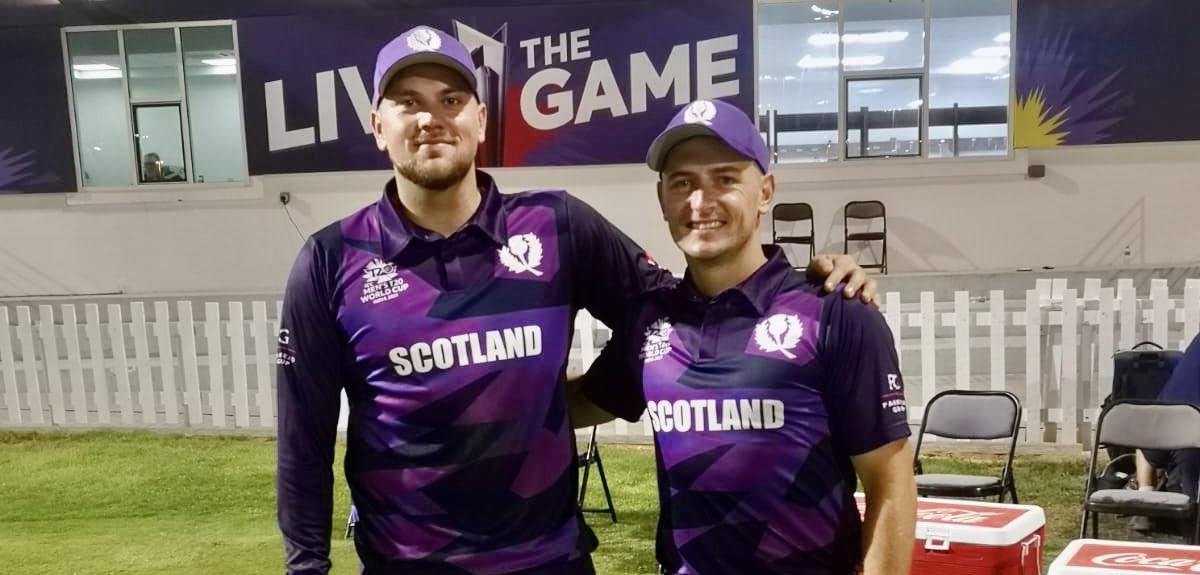
https://twitter.com/Greav_o
Scotland edges out Bangladesh
It would only be fitting to start this analysis in chronological order. Before the razzle-dazzle of the Super 12, there was quite a bit to appreciate in the first round. Scotland were struggling at 53/6, after the Bangladeshi spinners tied them down and took plenty of cheap wickets.
However, a fighting half-century stand between Chris Greaves and Mark Watt turned a floundering innings into a potentially decent total on a tricky pitch. Greaves successfully attacked Bangladesh’s quickest pacer, Taskin Ahmed, taking him for 15 runs off the 18th over.
Scotland started off with aplomb, when the pacers sent back both the Bangladesh openers early. A miserly spell from Watt and the introduction of the man of the moment, Greaves, once again flipped the script just when Bangladesh were starting to consolidate.
Greaves took the wickets of the experienced pair - Shakib Al Hasan and Mushfiqur Rahim, and two more quick wickets at the death for pacer Brad Wheal ensured that the Scotsmen would prevail under pressure.
There were lingering questions about the participation of Associate teams in World Cups, but this performance put much of the doubt to rest. In addition, this was the first time that they made the group stage in a T20WC.
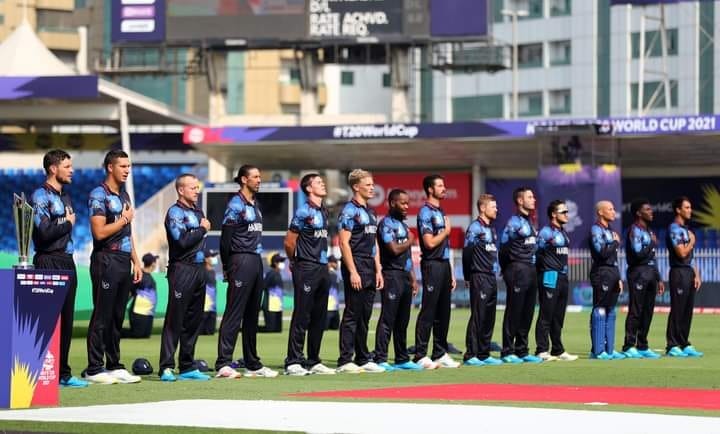
https://twitter.com/cricketnamibia1
Namibia announce themselves
Just like Scotland, Namibia became the second Associate team to qualify for the Super 12. One of their biggest highlights was the left-arm seamer Ruben Trumpelmann taking three wickets in the very first over against Scotland. Fast and fearsome, the left-armer extracted prodigious amounts of swing and movement and dismantled Scotland’s top order with ease. This led to Namibia’s only win in their group, but they showed plenty of dogged determination throughout their time spent in the UAE and Oman. They managed to score 132 against a strong Indian team, and that in itself is a good omen for what’s to come ahead.
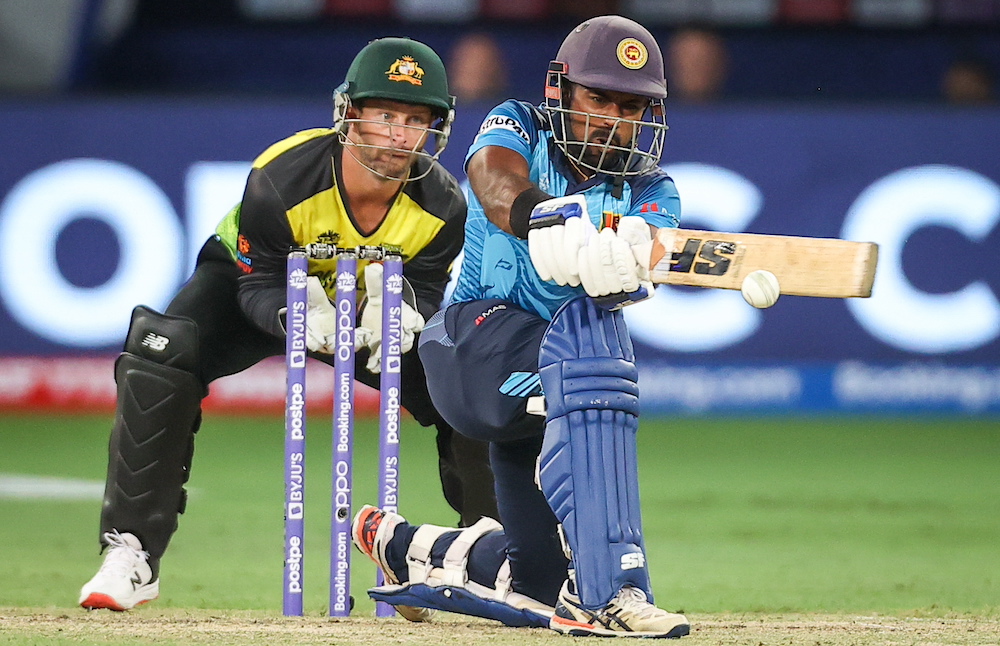
The rise and rise of Charith Asalanka
The Sri Lankans won this tournament nine years ago, and the current team has several newcomers and is gradually gaining traction. This was an opportunity for a few of the new kids on the block to seize and impress - and there’s no doubt that the find of this World Cup was the classy, hard-hitting left hander: Charith Asalanka. SL had a reasonably decent bowling lineup, but they needed batters to take on a more fearless approach.
Before this event, Asalanka had played a handful of international games, and shone against India. Since then, he was talked up as a long-term prospect for a rather struggling top-order.
Coming in at first drop, the 24-year-old took the initiative, scoring a tremendous 80* against Bangladesh to ace an improbable chase, and followed it up with 68 from 41 against the West Indies, whom the Lankans would comfortably repulse. Asalanka ended up the highest run-getter for his team (231 runs), and looks to have world-class promise.
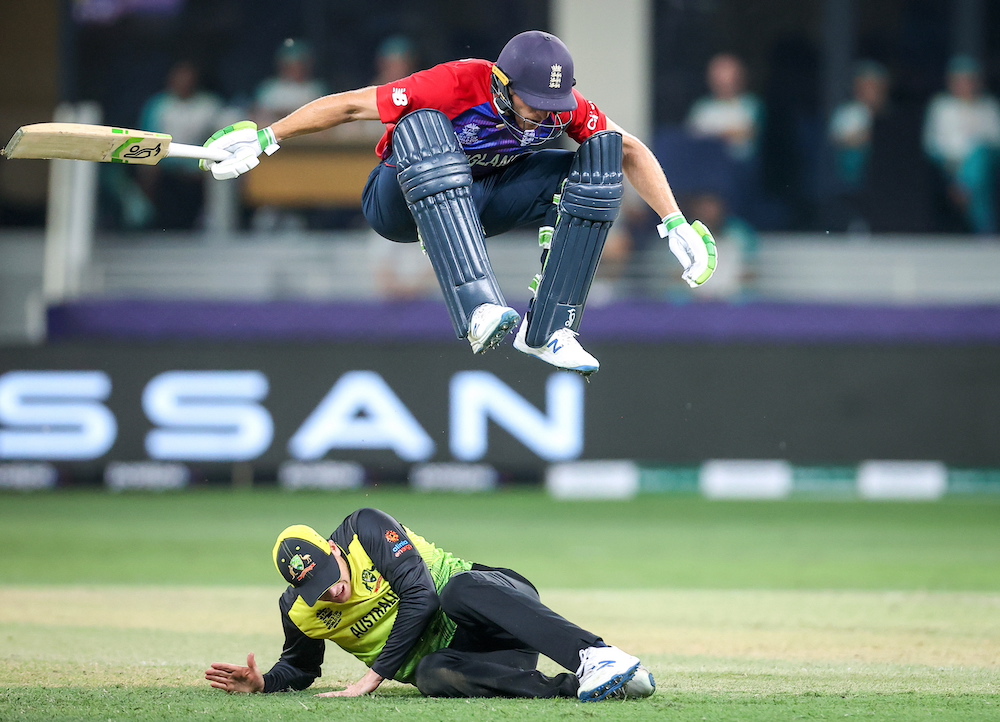
Jos Buttler’s breathtaking form
He’s often known for his finishing skills as an ominous death-overs hitter, but more recently, Jos Buttler has employed the exact same approach after being shunted up to the top of the order for England.
But we got to see another facet of his batting in the game against Sri Lanka. England were at 35/3, and it was far from an opportune time to take an unnecessary risk.
Buttler would calmly keep ticking along until the 14th over and onwards. He blasted his way from 35(38) to an imperious, unbeaten century. And it was no surprise that the last ball that went for six took him over the line.
Interestingly enough, he’s the first and only England player to have scored a century in all formats of international cricket. Sri Lanka were bowled out for 137, and this only accentuated the fact that it was a match-winning knock.
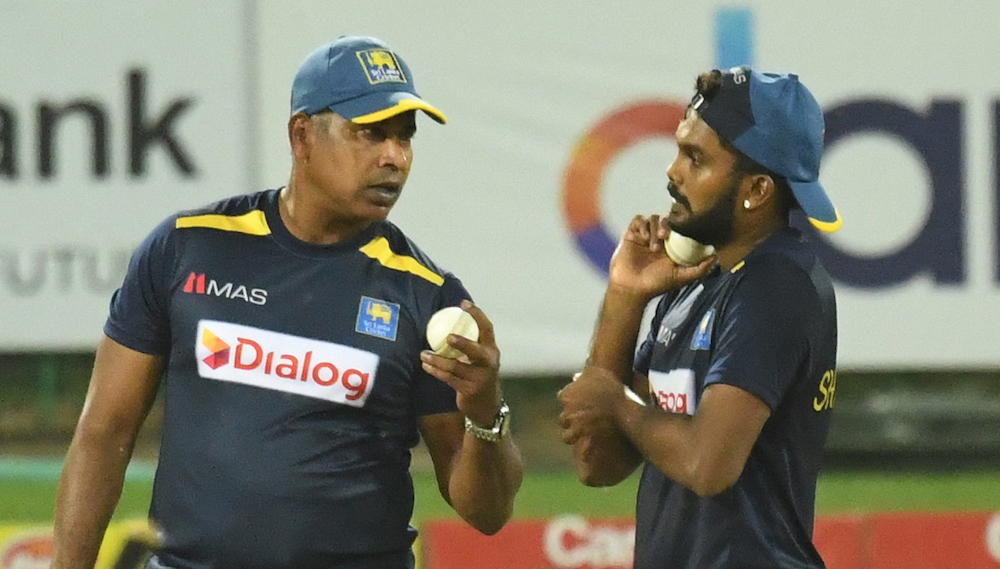
Headstrong Hasaranga surges ahead
It’s a story of another talented young Sri Lankan, and this time, it’s the leg-spin bowling allrounder, Wanindu Hasaranga. It’s been a year to remember for the 23-year-old: from consistent performances with bat and ball across formats, to an IPL deal, and culminating in a brilliant showing in the T20WC, it’s an unbelievable amount of success achieved in such a short frame of time. And to add icing on the cake, he’s now the No 1 bowler in the ICC T20I rankings.
His barnstorming hat-trick against South Africa nearly won the game for his team, and he ended up with 16 wickets in 8 games, with a sterling economy rate of 5.20.
While it was a far-from-optimal result in the Super 12, Sri Lanka have found themselves a fine crop of youngsters to back for the coming years.

Markram, van der Dussen bolster the Proteas’ batting
Leading up to this WC, there was plenty of discussion centered around how the bowlers have often been the match winners for South Africa as well as how subdued the approach with the bat seems to be. Both were valid arguments, but the consistency of the two powerful right-handers, Aiden Markram and Rassie van der Dussen, has injected new hope.
Markram has shown his adaptability to devastating effect - even though he’s an opening batter by trade, he’s felt very much at home at No 4. He slammed two rapid half-centuries against the West Indies and England, respectively, and displayed his penchant to clear boundaries. Considering he was pigeonholed as a Test cricketer during his early days for the Proteas, he’s now a very dynamic player.
On the other hand, van der Dussen has preferred to bide his time before freeing up. In fact, he struggled to score quickly against the West Indies, even though he ended up batting through without a lot of difficulty. Fortunately, a personal-best 94* in the final Super 12 game against England was suggestive of his readiness to attack relatively more frequently.
He’s easily been the most consistent batter for South Africa for the best part of the last couple of years, but the strike rate is undoubtedly an area for improvement. With all things considered, things are beginning to fall in place, with the next tournament less than a year from now.
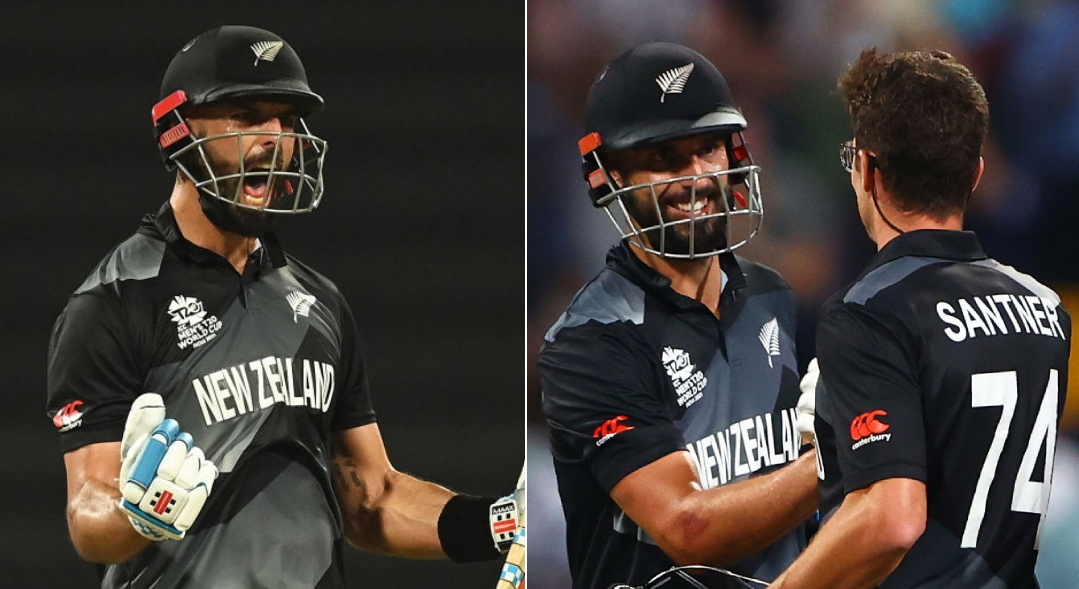
The scintillating semis: Part 1
By the time the Super 12 came to a close, more than just a few cricket fanatics were dismayed at the quality of cricket, since a lot of the games appeared to be toss-dependent and winning against relatively weaker teams would drastically change net run rate situations. However, things took a sharp turn for the better with two well-fought semifinal matches.
After posting a robust 166 in 20 overs, it looked like England were slight favorites against New Zealand. But a solid partnership from Daryl Mitchell and Devon Conway brought the Kiwis right back into the contest, and the big-hitting Jimmy Neesham produced a deadly cameo that turned the match on its head. The best part was the fact that Mitchell, a player who has never opened in T20 cricket before this WC, learned his new role and resolutely took on the greater responsibility. He morphed from accumulator to aggressor in the 19th over, sealing the deal with a flurry of boundaries.
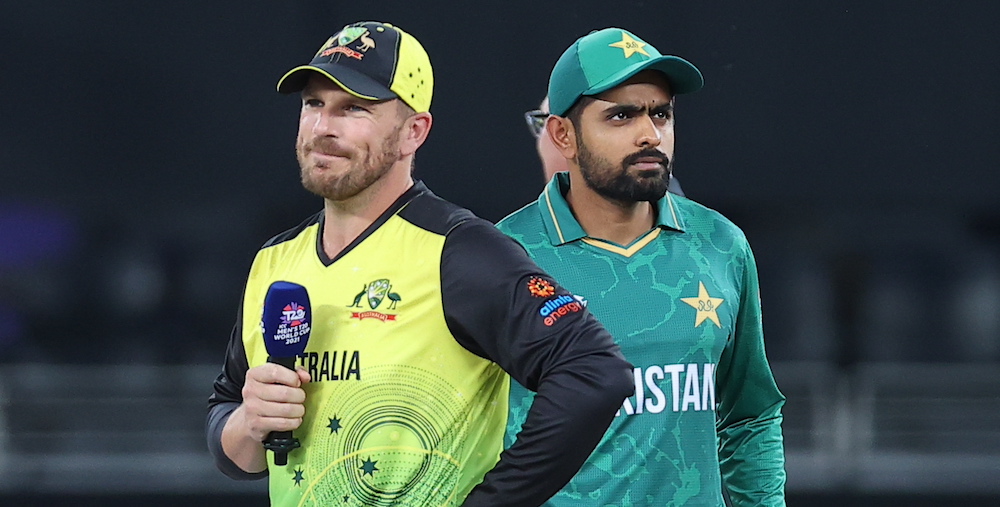
The semis: Part 2
In many ways, the game between Australia and Pakistan was a carbon copy of the England vs. New Zealand game on the previous day: Pakistan scoring an impressive 176, respectable bowling effort early on in the chase, and of course, frenetic death-overs hitting to seal the deal for Australia.
The main takeaway from both the semifinal games was the fact that there never was a moment when the chasing team was running low on confidence. Australia had lost 5 wickets with 8 overs to spare, and it took a ruthless partnership between Marcus Stoinis and Matthew Wade to unnerve a team that looked so much at ease during the Super 12 phase.
A dropped catch in the 19th over followed by three consecutive sixes from Wade was like a match within a match. In the shortest format of the game, even the slightest error can prove to be costly, and this was the epitome.
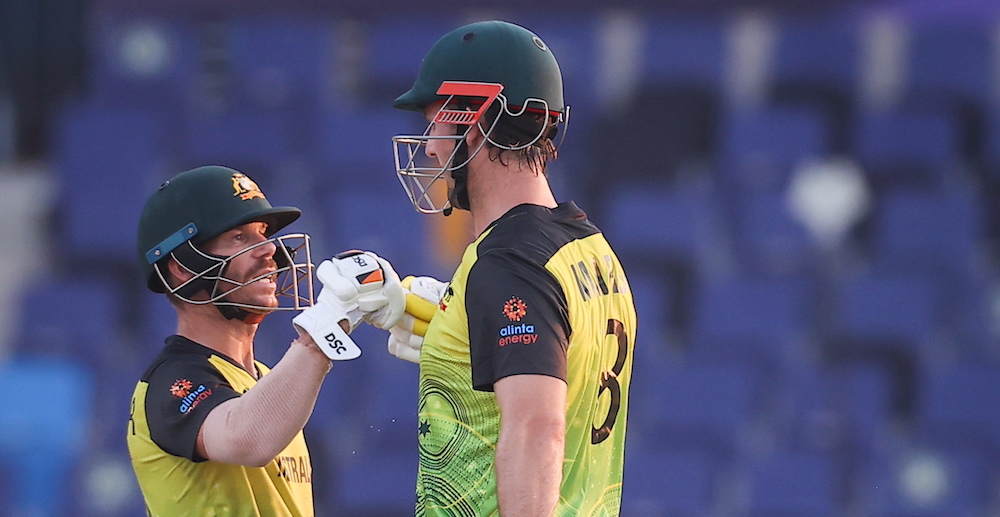
Australia’s playing XI balance
This may not be considered a “magic moment” per se, but it definitely deserves merit. Early on, there was some uncertainty over playing 7 batters and 4 bowlers in the XI, but on the flip side, it was beneficial on both counts. Selecting 7 batters meant that the batting depth issue was solved, but more importantly, they had players that could chip in and be the “fifth bowler”.
The best example of this was Glenn Maxwell’s offspin - he’s normally better known for his batting, but this was a friendly reminder that he is, in fact, a genuine allrounder. Not known to be a big turner of the ball, Maxwell was predominantly used in the Powerplay, and produced a few handy spells as a result.
Mitchell Marsh and Marcus Stoinis were useful medium-pace choices, but with the UAE surfaces being more spin-conducive, Maxwell was the more obvious option.
Backing Mitchell Marsh to bat at #3 was another master stroke that paid plenty of dividends. He was trusted with this new role since the away T20I series against the West Indies, and he’s scored 6 half-centuries in that position this year.
Previously, he had a best score of 39*, but today’s knock of 77* from 50 balls made sure that the victory was signed, sealed, and delivered. It was almost a role reversal, since Steve Smith was more of a floater rather than the usual #3 role he has been more accustomed to, but most importantly, everyone managed to do their part when it mattered most.
With all the bowlers raking in the wickets and complementing each other well, a team that seemed to have a few square-peg/round-hole situations in their playing XI performed like a well-oiled machine and cleaned up during the high-stakes games.
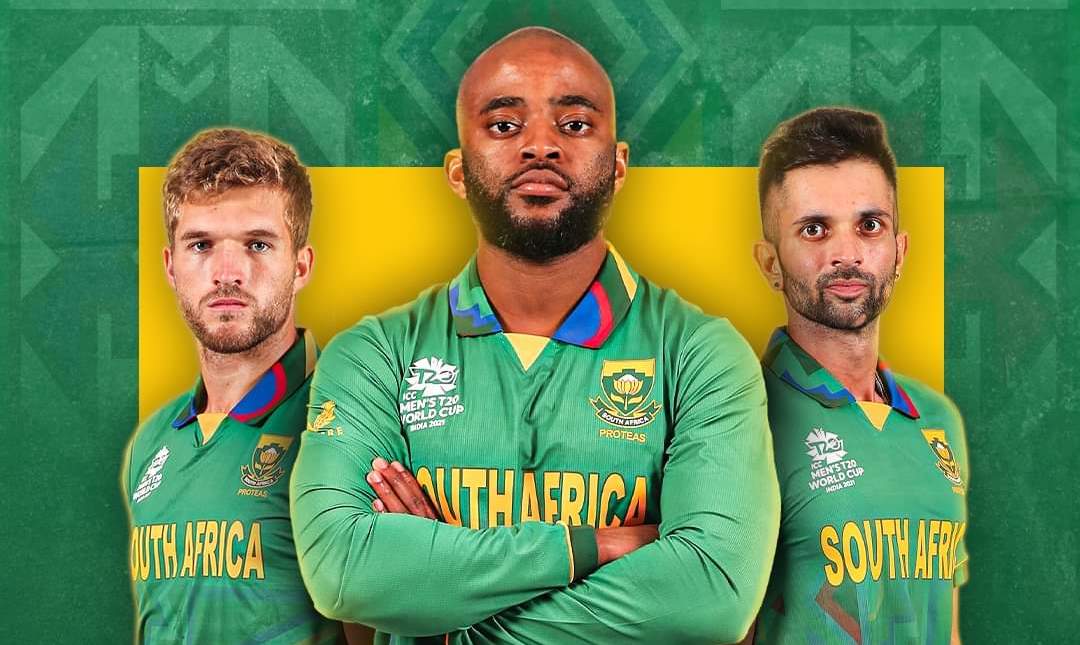
T20 World Cup Q&A: Coach vs Comedian
By Khalid Mohidin
The World Cup has concluded. Fans, pundits and coaches had their own opinions on the Proteas' journey throughout the campaign.
We wanted to get polar opposite views on South Africa's campaign.
So, we spoke to highly-respected coach Dinesha Devnarain and comedian Dalin Oliver and asked them the exact same questions.
Let's see how their answers differ.
Dinesha Devnarain
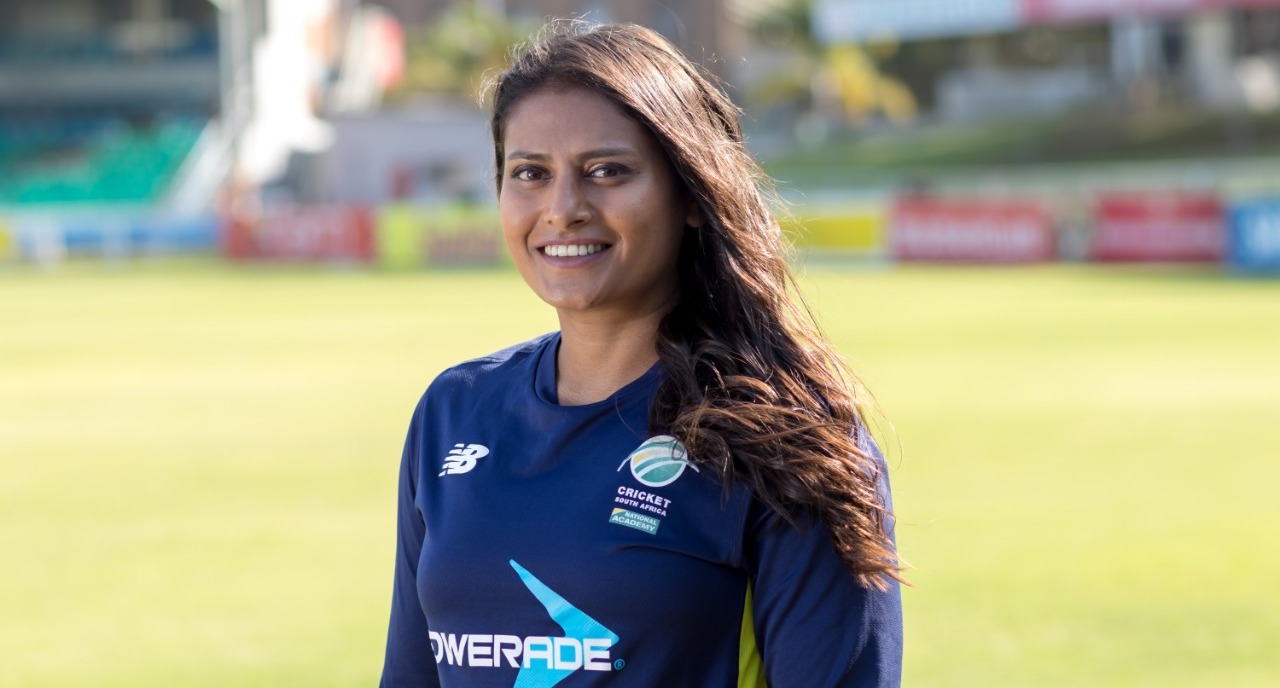
What is your opinion on the Proteas’ World Cup campaign?
I felt they had an excellent tournament. To lose one game and not make a semi is heartbreaking but I do feel this is the best we have played in a long time. It's unfortunate for the NRR but we progressed so well in the tournament.
Where do you think they can improve ahead of the next World Cup in Australia in 2022?
To win all games, haha. But in my opinion, when it comes to weaker opposition, we need to maximise our full potential with the NRR, we have to build on what we achieved from this World Cup, and we can always look at combinations at the top of the order.
We should also play more competitive cricket with different nations before leading into a World Cup where we can try these combinations. We also need to make sure that role clarity at the top is precise.
Australia, won the World Cup, what impressed you the most about them?
The fact that they were never even spoken about when it came to winning this World Cup. They had poor performances in series before the World Cup and many people wrote them off, even in the group stages they never looked unbeatable.
But what I admire about them the most is that when it comes to playoffs, they move forward and improve. It's like they are a different side that looks unbeatable when they are in the playoffs.
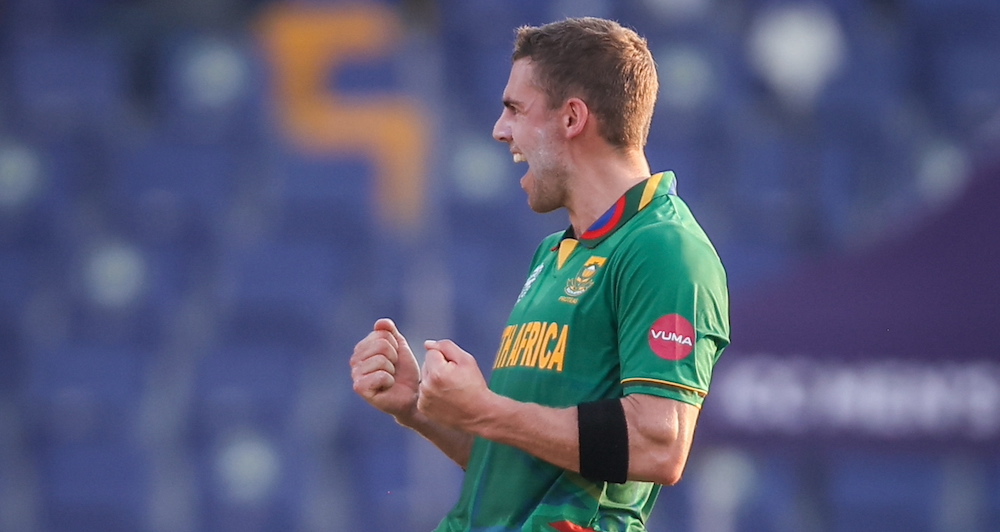
Which Proteas player impressed you the most in this campaign?
Between Markram and Nortjie...they were just World Class. I have so much respect for our team but those 2 just had venom in the way they approached their game.
Looking ahead to the 2022 World Cup in Australia, who has impressed you in this campaign that will be key to ensure South Africa have a good run in the next competition in very different conditions?
The whole team. Like I've said before they progressed so well, I'm so excited to see more of the brand that they are playing. I feel Rabada and Miller has so much more to offer to the team.
Shamsi is also someone that is a match-winner, they have all the talent and capabilities, it's about matchups and combinations for me.
Apart from South Africa, India will come back with vengeance and Pakistan still needs to prove a point.
My heart goes out to New Zealand and I feel they will be a lot more hungry after this.
Which team, other than the World Champions, do you think South Africa can learn from to improve their T20 game?
I feel we have a similar brand to New Zealand in how we go about our business and I just think New Zealand looked like they had more clear roles and plans...which we may lack.
DALIN OLIVER

What is your opinion on the Proteas’ World Cup campaign?
I’m always shouting for my country regardless of what sport they are playing. I’m very patriotic and support them till the bitter end.
Regarding the Proteas’ World Cup campaign, I was happy with the way it ended not the way we started. I think we all look back at that Australian match and think: “Oh man, that collapse, how did it happen?”
If it didn’t happen we would have had a better chance of progressing to the semi-final.
Our bowling unit has been very consistent over the last two years and a bit. What was fantastic about our last match against England – it was the first time we played with the freedom that we wanted from the team since before the World Cup started. A lot of cricket lovers were chatting about how good we would be if we just clicked and certain players brought what was needed from them to the table.
And in the final match, we saw Rassie and Markram do that in the batting department and KG, with Nortje, amongst others in the bowling department – Shamsi, Maharaj and Dwaine– they were outstanding throughout. Sorry if I missed anyone, I’m not taking favourites here.
Also against Bangladesh, we should have chased down that total much quicker. We should have kicked it old school, club cricket style, and go “Pos” (smash) at the top of the order and knock it off as quickly as possible because we knew run rate was going to be a factor and it did in the final match.
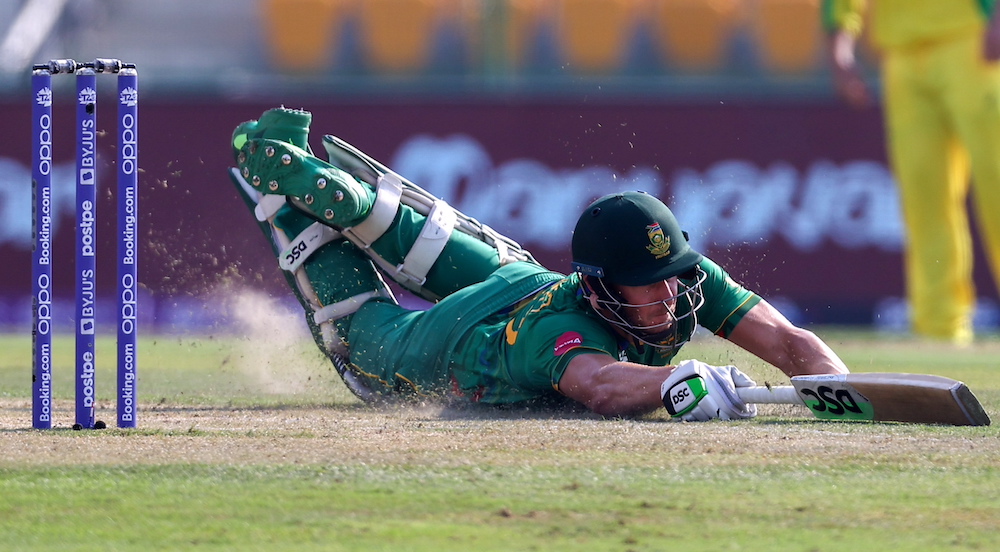
Where do you think they can improve ahead of the next World Cup in Australia in 2022?
I think definitely in the batting department and just playing with more intent and showing more belief. That final match there was an X-Factor that we had. We were using the crease, taking on the attacks. We showed – that local slang word we use in Cape Town – “Plak” (courage).
We played with “Plak” and I liked that. When teams play with “Plak” you are taking the game and not waiting for the game to come to you. England is a prime example even though they didn’t win it, their batters, from the get-go, are not giving the bowlers the time to settle.
For me, if we can improve our batting then we going to be big contenders for the title and to win the trophy because our bowling department is “Gun” from our seamers to our spinners.
We are up there with the best in the World and can take apart any batting lineup. So now it’s up to our batters to bat with the “gees” (high energy) and consistency of dominating bowling attacks and stamping their authority the way we know South Africa can.
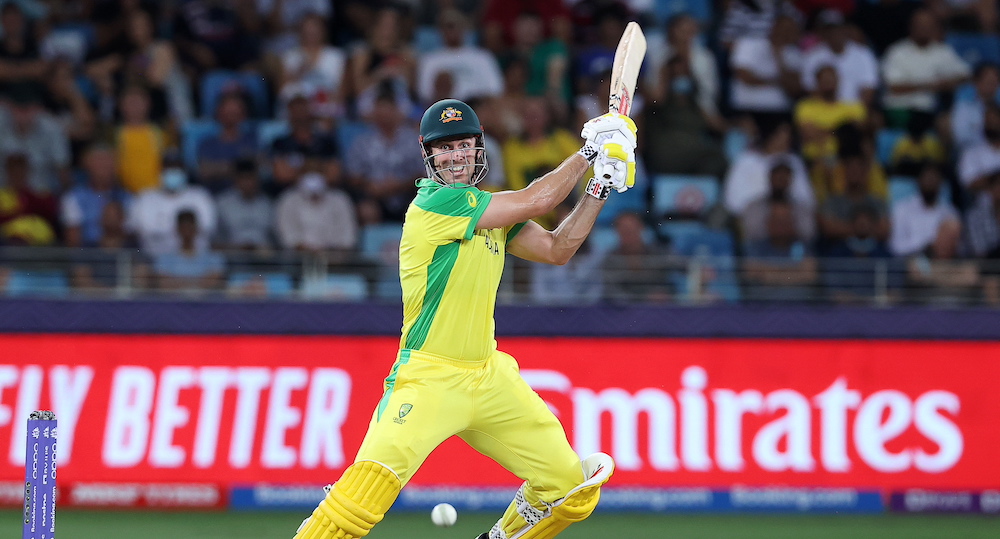
Australia won the World Cup, what impressed you the most about them?
I have a love-hate relationship with Australia. Obviously because of the big rivalry we have with them and the fact that they didn’t come to our country during the lockdown because of the pandemic, but then they went to other tours etc, but we won’t get into that.
You can’t not love them and not credit them for the amazing World Cup campaign that they had… I mean they warmed up very well. They were like an old car that just warmed up slowly but surely and then hit the NOS button at the right time and won that quarter mile. I’m obviously likening this to a drag race. Imagine I’m talking about 'Fast and the Furious' and the Aussies were Vin Diesel hahaha.
But on a serious note, they did extremely well. Zampa bowled brilliantly by using conditions to his advantage and guided that bowling unit along with Josh Hazlewood. Australia has a World Class bowling unit that stepped up to the plate. But also in the batting department, my word.
The “Pocket Rocket”, David Warner, love him or hate him, he takes bowling attacks apart. Just watching him in the final, it was magical. There’s a lot of Sanath Jayasuriya in him when he’s cutting or square-driving over point. Quick hands, quick wrists, just managing to get it over the inner ring. He’s a special player and he showed up.
Having a guy like that at the top of the order puts confidence in the middle order when you have guys like Stoinis coming in who can smash it all over the park. Wade as well, Gun Player.
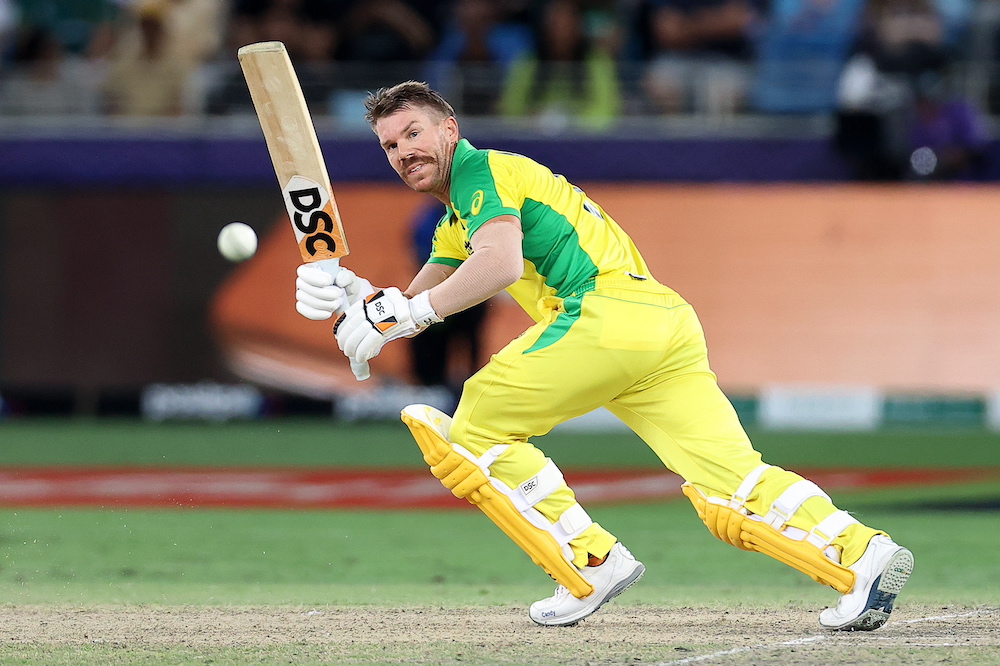
Then Mitch Marsh, what a revelation, coming in at No 3, Justin Langer’s trust in him paid off. So credit to them. They have this never-say-die attitude and are this gritty tough opponents who regardless of the situation, never back down. You have to give them credit regardless of what happened in the past with the sandpaper scandal and ball-tampering. It was a bitter pill to swallow but great to watch.
Which Proteas player impressed you the most in this campaign?
It’s always tough to single out people… But let’s start with Rassie van der Dussen. I like him. He’s gritty and not scared. He’s innovative and uses the crease well. The way he was lap sweeping and paddling was fantastic, and to see him find form over the past two years and step up to pressure situations was great and he did that in the World Cup. We saw that in the final match. Playing to his strength – anything on the legs or coming middle-and-leg he’s going to flick you or murder you over mid-wicket, deep-backward square or cow corner.
KG is always magic. For him to be smashed for 3 sixes and then take a hattrick – he’s a special player.
Anrich. My genade, dy man is blitz vinnig (My word that man is lightning quick). You got baie vinnig (very quick), blitz vinnig and then you got Anrich Nortje vinnig. My genade. Die man bowl mense dood (he bowls people dead).
Maharaj and Shamsi are guns in every situation.
Dwaine Pretorius impressed me a lot. The way he took to his role at the backend of the innings. I loved it. He really surprised a lot of people in the way he adapted his pace. The way he was calm and consistent in taking wickets and remaining calm in pressure situations.
We’ve all been waiting for Aiden Markram to be comfortable in his skin and fulfil his potential. We love him and we know his capabilities. It was great to watch him come into his own.
I was also impressed with our captain Temba Bavuma with important knocks. Obviously not at 140-200 strike rate, but he scored two important knocks. He came into his role well, he never had big knocks like we would have wanted, but slowly but surely coming into his role. His captaincy was awesome on and off the field. He was dealing with lots of pressure and he was cool, calm and collected. He handled his business extremely well in the press conferences and post-match interviews.

Looking ahead to the 2022 World Cup in Australia, who has impressed you in this campaign that will be key to ensure South Africa have a good run in the next competition in very different conditions?
The Proteas must just sort out their batting department. We need to be fearless, “gun”, believe that we can dominate any attack in the world and then go out and execute. The fearlessness was there against England.
Going forward we need to sort out our top six – the right combinations and having the consistency with that leading into the warm-up matches.
Temba needs to know who his starting XI is and how they are going to play around with combinations. If they don’t do that it will be scary, because they will be repeating the mistakes they made in the batting department.
We must also sort out any off-field politics prior to the tournament. We can’t have that affecting our World Cups. We need to be open and chat about it. Teams have been taking the knee against racism, it’s important, but they need to be chatting about this amongst the team members before the tournament.
The house must be in order before anything else can affect the house. The house led by Temba, Mark Boucher and then the rest of the team and staff. If the foundation of the house is strong, then we are going to win World Cups. The house also includes the board and all members of CSA that make things tick. Everyone needs to be on the same page.
As SA we are always learning – our country has many socio, political, cultural, racial, historical issues that we need to deal with and talk about, and if there’s a safe space and the right environment created for it to be spoken about, it won’t be awkward. Almal moet praat. Everyone needs to speak. We love cricket and the Proteas and want to see them fly as high as possible.
Which team, other than the World Champions, do you think South Africa can learn from to improve their T20 game?
You can learn bits and pieces from each team. To single out one team it’s Pakistan. That's my second tournament favourite. Always. I love Pakistan. I've just always enjoyed them over the years. But this team, in particular, is very special. To see Philander assisting them in the bowling department representing South Africa as well... But Pakistan has been amazing. And I mean, on the back end of England and New Zealand cancelling the respective series to them before the World Cup. I think their reasons were COVID fears, I think but I mean, yeah, that's a subject to question another time, whether or not that's the truth.
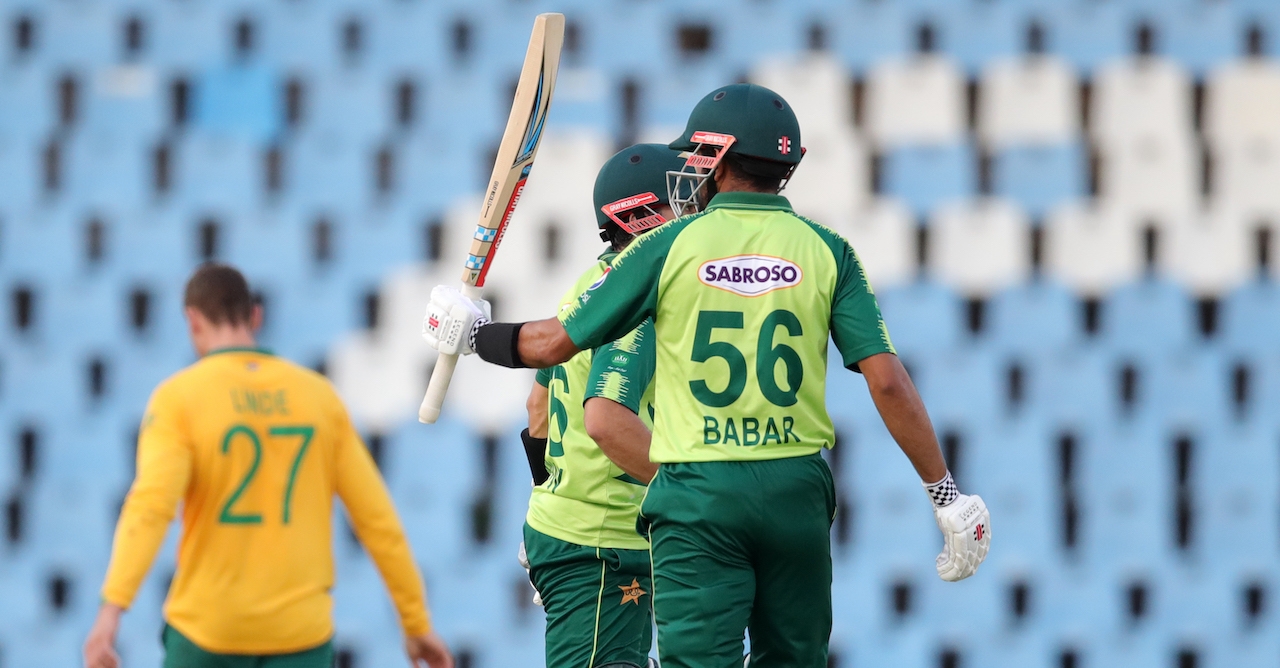
But then coming up to the tournament, wow, wow, wow. Wow. They stole the hearts of everyone. If you support cricket and you saw the way Pakistan played, you were in the corner. I mean, from the captain Baba, he’s such a humble human being. He and Rizwan at the top of the order, I think they are one of the most lethal batting partnerships in the world. The middle-order as well. They just showed so much grit and determination.
Shaheen Shah Afridi, Haris Rauf – gun bowlers man, everyone played the part and their role. They played fearless cricket with freedom. So that's the thing for me fearless, but smart and making sure that you are tactical as well.
So if we can figure out that as the Proteas – that fearlessness and the attacking the game and not being bang (scared) of the opponents in terms of domination, then we'll be on the up. But Pakistan, yoh, a team of note. I just hope it gets more and more success over the years.

Dan Weston: Taking a closer look at the numbers
Dan Weston didn't have much talent in cricket, but has always been numbers inclined.
So after years of working as an accountant, he became a professional gambler, before he decided to have a look at cricket using numbers.
Now he is a recruitment specialist and helps teams with strategy.
Dan currently works with Birmingham Phoenix and Leicestershire CCC.
Offside Maidens
Daily Show | Let's talk about it
Video Playlist
The Podcast Live Show:
Exclusive Interviews
Crossword Puzzle
T20 World Cup Captains!
ISSUE 16: Crossword Answers
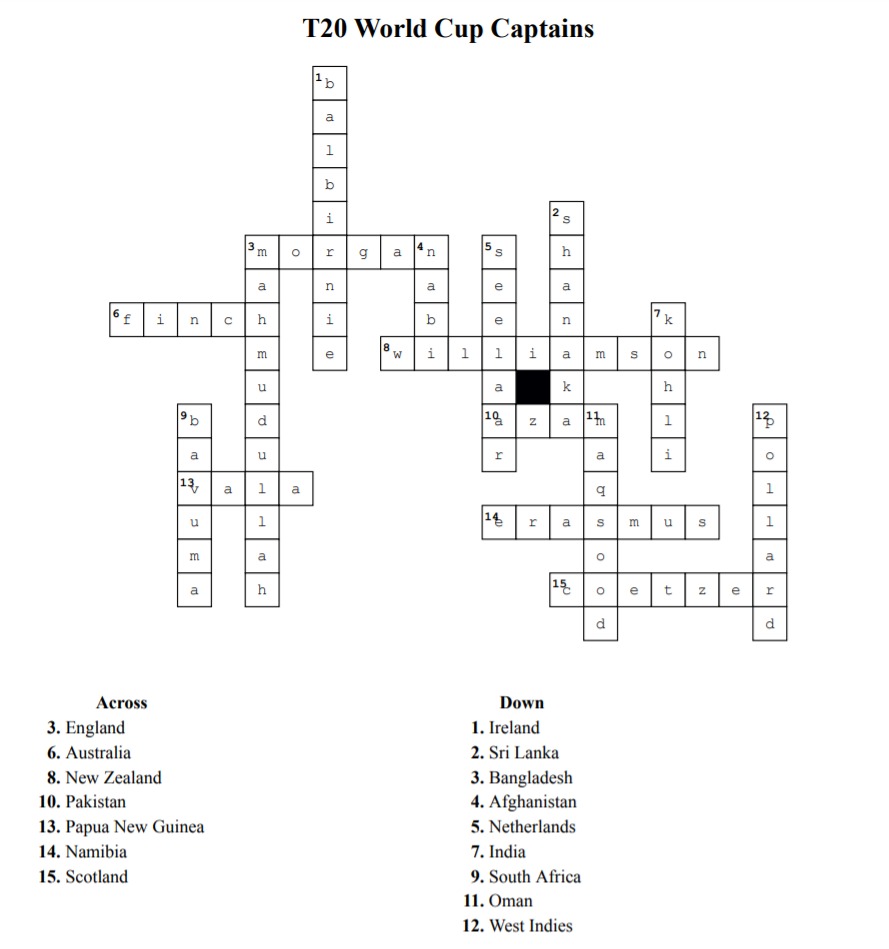

Magazine info
Editorial Director
Khalid Mohidin
IT and Technical Director
Faizel Mohidin
Contributors
Aaron Viles
Abhai Sawkar
Aditya Mehta
Alasdair Fraser
Chris Chiwanza
Emily Norris
Janine October
Jessica October
Khalid Mohidin
Licia Woods
Marc Jacobson
Nasri Alexander
Tara-Lee Essack
Graphics
Khalid Mohidin (Cover and Graphics)
Mohammed Hoosain (CFM logo)
Images
BackpagePix
CSA (Bjorn Fortuin Header)
Getty Images
ICC
IPL
Supplied
Twitter
Facebook
Video Binge List:
On Lockdown Series
The Podcast Show
Legends with Ravi
Daily Show
